Hello and welcome to Work Week, the podcast where we answer one pressing question about the future of work, explore what the research says about the topic, and explain what it all means for you.
I’m Dr. Gabby Burlacu, Senior Manager with the Upwork Research Institute. What you’re hearing is a digital proxy of my voice—created with the very AI technologies that are transforming work as we know it.
In last week’s episode, we explored how coaching and development are emerging as a strategic imperative for both professionals and organizations. We looked at the growing need for human guidance and why human-to-human support is proving to be irreplaceable as industries and the entire economy move through a transformative, disruptive period of change.
This week, we continue our exploration of the importance of human skills in a period of massive technological uplift.
So let’s get into our one big question for today: Which skills are the most valuable in a world that is increasingly affected by AI?
The answer in short: soft, human-centric skills. And here’s why.
As AI picks up more of our analytical, repetitive, and operational tasks, it’s not replacing workers—it’s reshaping work. That means the real differentiator for businesses and professionals alike isn’t technical expertise—it’s how we communicate, collaborate, and navigate complexity.
Because of this, soft skills are becoming the hard currency of the workplace.
The skills that enable people to both work together and to manage and collaborate with AI—think adaptability, communication, problem-solving, and critical thinking—are increasingly defining the most successful professionals.
As AI continues to automate some tasks, human skills aren’t becoming obsolete—they’re becoming foundational.
And external research supports this.
According to LinkedIn platform data, communication was the most in-demand skill in 2024. More than coding, more than AI literacy, communication was valued. The most in-demand skills on LinkedIn are measured based on the share of a skill possessed by members who have been hired or received recruiter InMails, as well as skill listed in paid job listings.
A 2024 LinkedIn Economic Graph survey of one thousand nine hundred ninety one global executives also found that nine in ten respondents believe soft skills, also known as human skills, are more important than ever. Additionally, thirty-eight percent of global C-suite executives said they prioritize agility when evaluating entry-level candidates. That’s right: Agility—more even than GPA or hard skills—is now a top measure for career success for early-career professionals.
At a time when soft, human-centric skills are proving to be more valuable, our Future Workforce Index shows that skilled freelancers are outpacing full-time employees in nearly every human-centric competency.
For example, the research, which features insights from three thousand skilled knowledge workers, found that forty-nine percent of freelancers report problem-solving as a strength, compared to forty-four percent of full-time employees. Freelancers also report stronger skillsets in clear communication, critical thinking, and adaptability than full-time employees.
Equipped with these uniquely human skillsets, skilled freelancers are also more motivated and energized by their work than full-time employees. Eighty-three percent of skilled freelancers say their work contributes positively to their sense of physical, mental, and emotional well-being. Additionally, 82% of skilled freelancers believe they have more work opportunities available to them than a year ago, compared to 63% of full-time employees.
These findings suggest that individuals who operate in more flexible, autonomous work environments—like many freelancers—are developing and applying human skills more effectively than their full-time employee counterparts. And that makes sense. Freelancers often need to solve ambiguous problems, navigate client expectations, juggle multiple deadlines at once, and communicate value across different contexts.
But this isn’t only a freelancer story. It’s a future of work story.
Rather than replacing the value of our uniquely human capabilities, AI is making human skills more important.
According to a December 2024 survey of 2,500 full-time workers distributed by Workday, 83% of respondents believe that AI will elevate the importance of human skills—especially those related to creativity and emotional intelligence.
In fact, the skills deemed least likely to be automated—because they are so context-driven and relational—are also the ones considered most critical. These skills include ethical decision-making, relationship-building, emotional intelligence and empathy, and conflict resolution.
These are not fringe competencies. Uniquely human skills are the foundation of leadership, collaboration, and innovation in any business.
And as it turns out, people developing generative AI skills are also 13 times more likely to develop human skills like change readiness, according to the LinkedIn research we just mentioned. This suggests that adopting AI tools doesn’t only improve technical fluency—it fosters human agility.
Now, let’s address a common misconception. The term “soft skills” doesn’t do these abilities justice.
Navigating a high-stakes negotiation with empathy and clarity takes mettle. Leading a team through uncertainty with grace, and resolving conflict in a way that builds rather than erodes trust, takes mettle. These are power skills, not soft skills. And they are now central to your company’s competitive edge.
In a world where many technology solutions are available to anyone with internet access, how well you listen, synthesize, and creatively respond is what will set you—and your workforce—apart.
And increasingly, organizations are waking up to this reality.
Companies that emphasize soft skills may embed human skill assessments into hiring processes. They may also offer upskilling opportunities focused on both AI tools and the human behaviors that enable these tools to be used effectively.
I want to revisit our Future Workforce Index data. Why are skilled freelancers leading in human skills like communication and problem-solving?
It comes down to exposure and autonomy.
Freelancers often work across diverse industries, client types, and communication platforms. They run their own businesses, address challenges, adapt to shifting demands, and learn how to communicate across cultures, time zones, and expectations.
This environment accelerates their development of human skills.
And for traditional companies, this offers an important insight: Human skills flourish better in dynamic, trust-based environments than they do in rigid hierarchies or overly scripted workflows.
Let’s pause and ask the deeper question.
What if human skills are no longer a complement to technical skills—but the core of what gives your business long-term viability?
Think about it. AI can process and analyze more data than humans ever could. It can write and generate visuals at lightning speed. But it can’t resolve a tense conversation between teams. It can’t inspire trust. It can’t choose courage over comfort in a difficult decision.
Those moments—the ones that define leadership, team dynamics, and innovation—still belong to us.
I want to wrap up this week’s episode of Work Week as I always do, by giving you an action to consider implementing and an idea to reflect on.
For this week’s action item, if your goal is to build a workforce that’s both AI-savvy and human-centric, start by creating conditions that mirror the adaptability and client-focus of freelance work. These conditions include project-based learning, cross-functional experiences, and space to experiment with new technology and processes.
Then, audit and improve your development programs to ensure you’re not overlooking human skills.
Review your hiring and onboarding processes, your learning pathways, and performance reviews. Are you measuring and nurturing human skills as intentionally as you do technical skills?
If not, take a few actionable steps to get started.
First, embed relevant human-skills training into your talent development tracks. For example, during communication skills training, go beyond focusing on how to conduct client presentations. Also focus on difficult conversations, feedback loops, and storytelling.
Second, create space for critical thinking through open-ended projects, retrospectives, and real-world problem solving.
Third, make adaptability a shared goal by rotating roles, promoting internal projects, and celebrating people who take risks or shift directions successfully.
Finally, tying back to last week’s episode, invest in coaching, including peer coaching and mentorship, to give people real-time guidance on their human-centric skills.
And for the independent professionals in our audience, consider starting your own human skills sprint. Take on a stretch assignment that forces you to communicate differently, join a feedback group that encourages you to practice emotional intelligence, or read a book about conflict resolution.
And for our reflection question this week: Instead of asking whether AI will replace soft skills, ask How are we actively developing soft, human-centric skills—before it’s too late?
The changes AI is bringing to industry isn’t devaluing human skills. It’s spotlighting them.
AI is revealing that the skills we’ve long called “soft”—the empathy, clarity, curiosity, and courage—are actually the strengths that hold everything else together.
So as you prepare for a workplace that’s more automated, digital, and distributed, don’t neglect the human aspect.
Your ability to lead with human skills is your most powerful competitive advantage.
That’s it for this episode of Work Week. I’m Gabby Burlacu and this week, we posed the question: Which one type of skill is the most critical in an AI-driven world of work? And we discussed why soft, human-centric skills are more important than ever before.
Thanks for tuning in. If this episode sparked ideas for how you can grow or support human skills in your team or in your own career, share it with someone who’s on the same journey. And don’t forget to subscribe for more research-backed insights on the future of work.







.png)
.png)
.png)
.png)
.png)
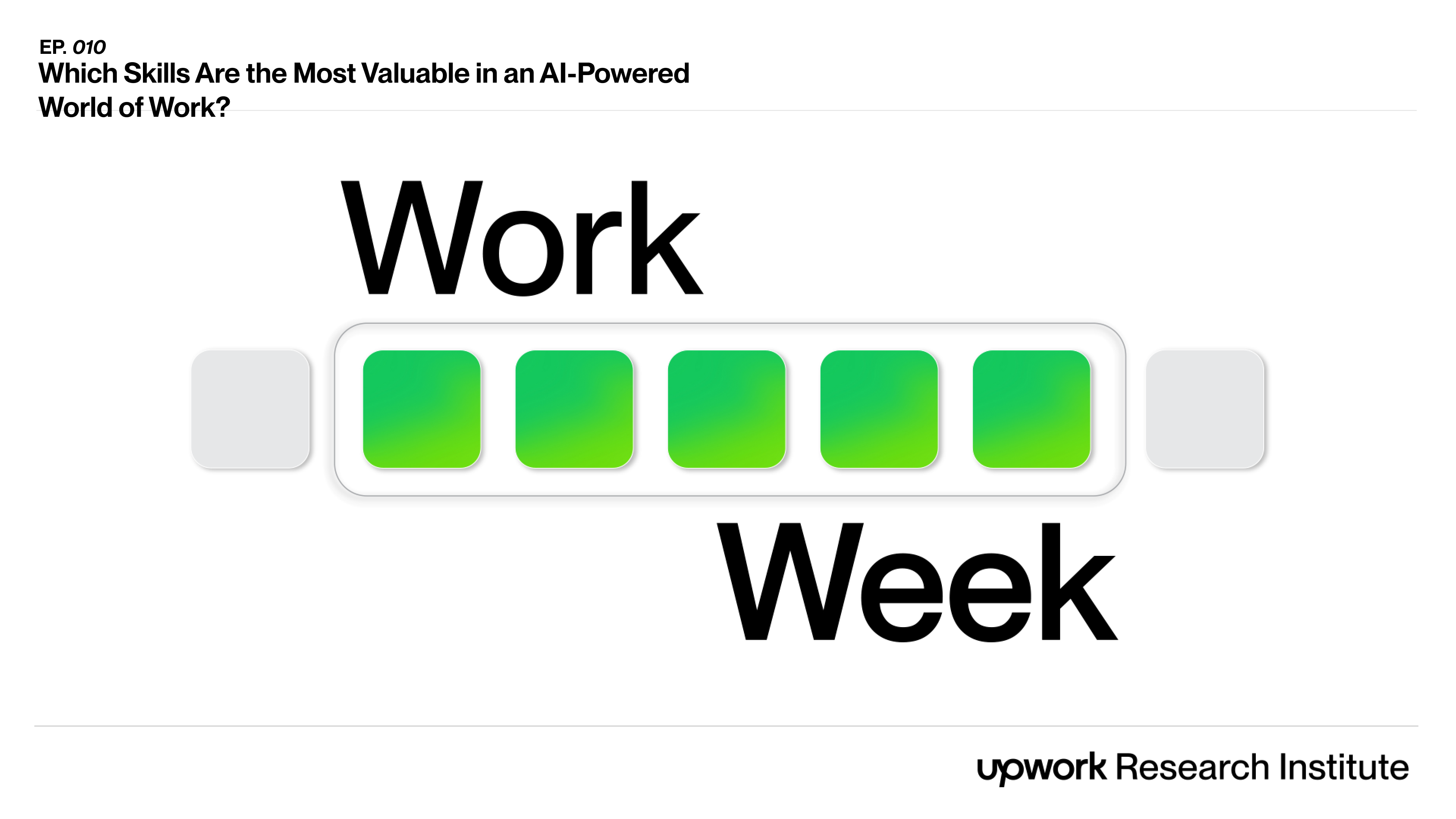


.png)

-p-500.jpg.png)

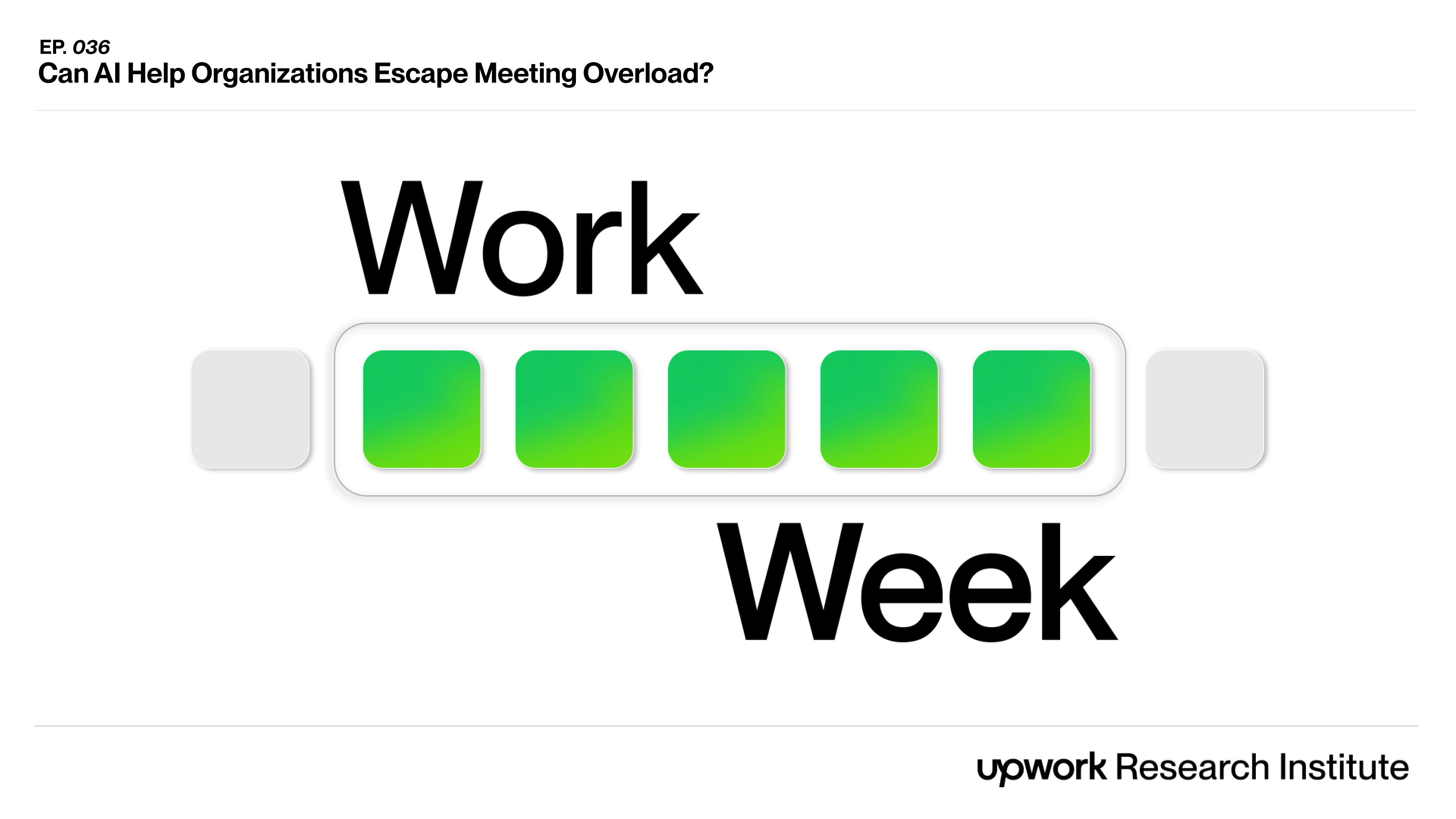

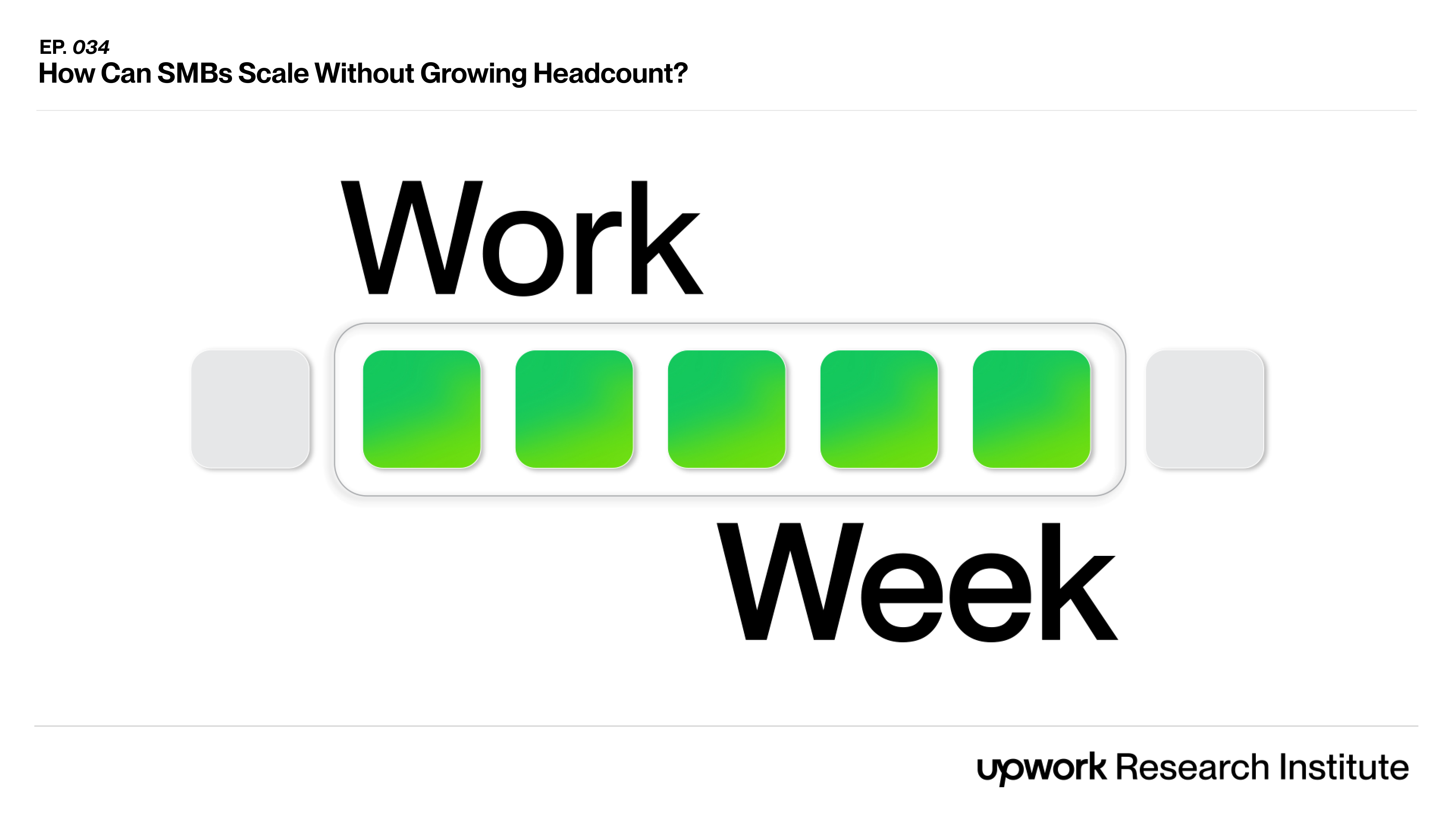
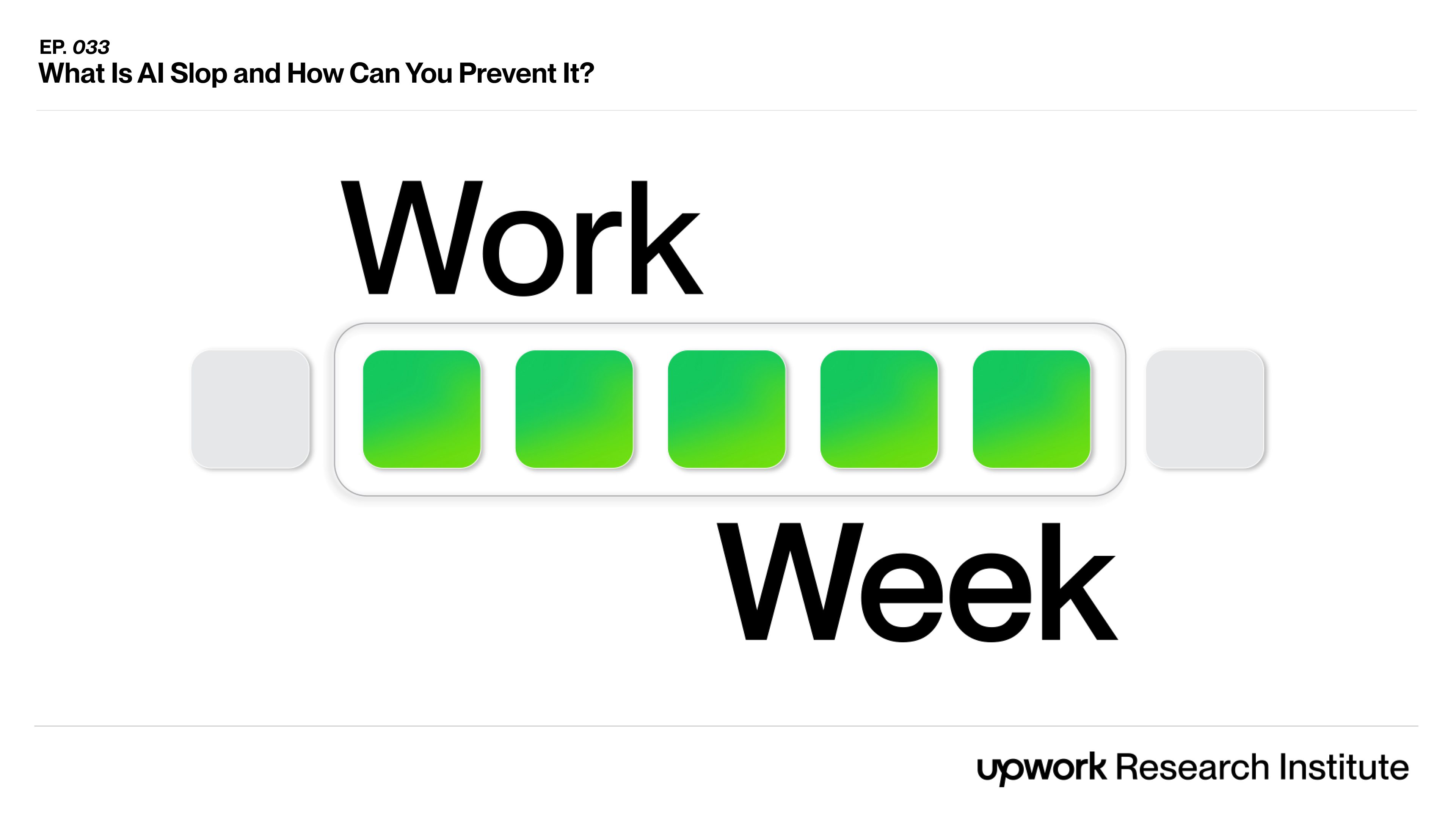
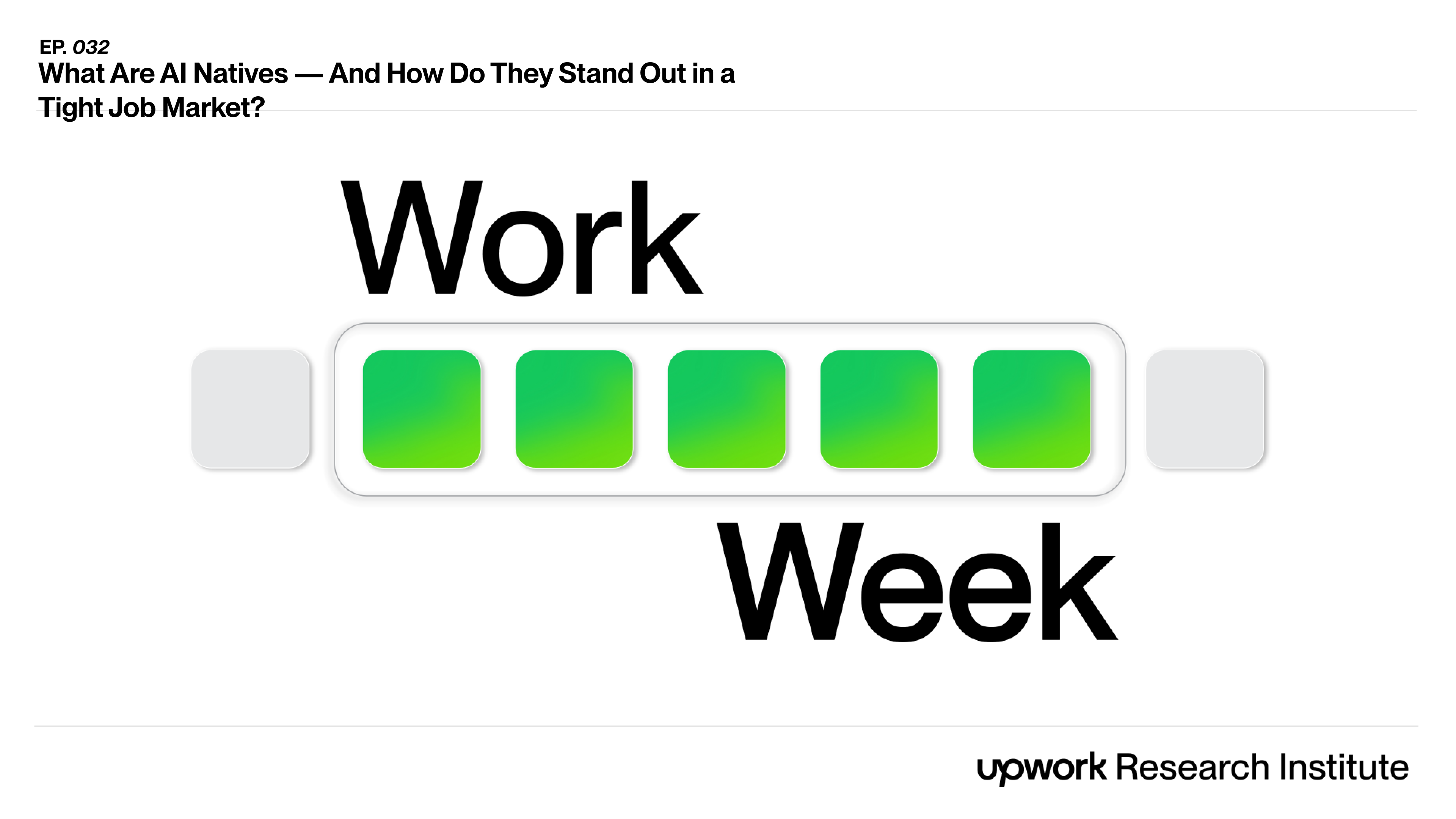
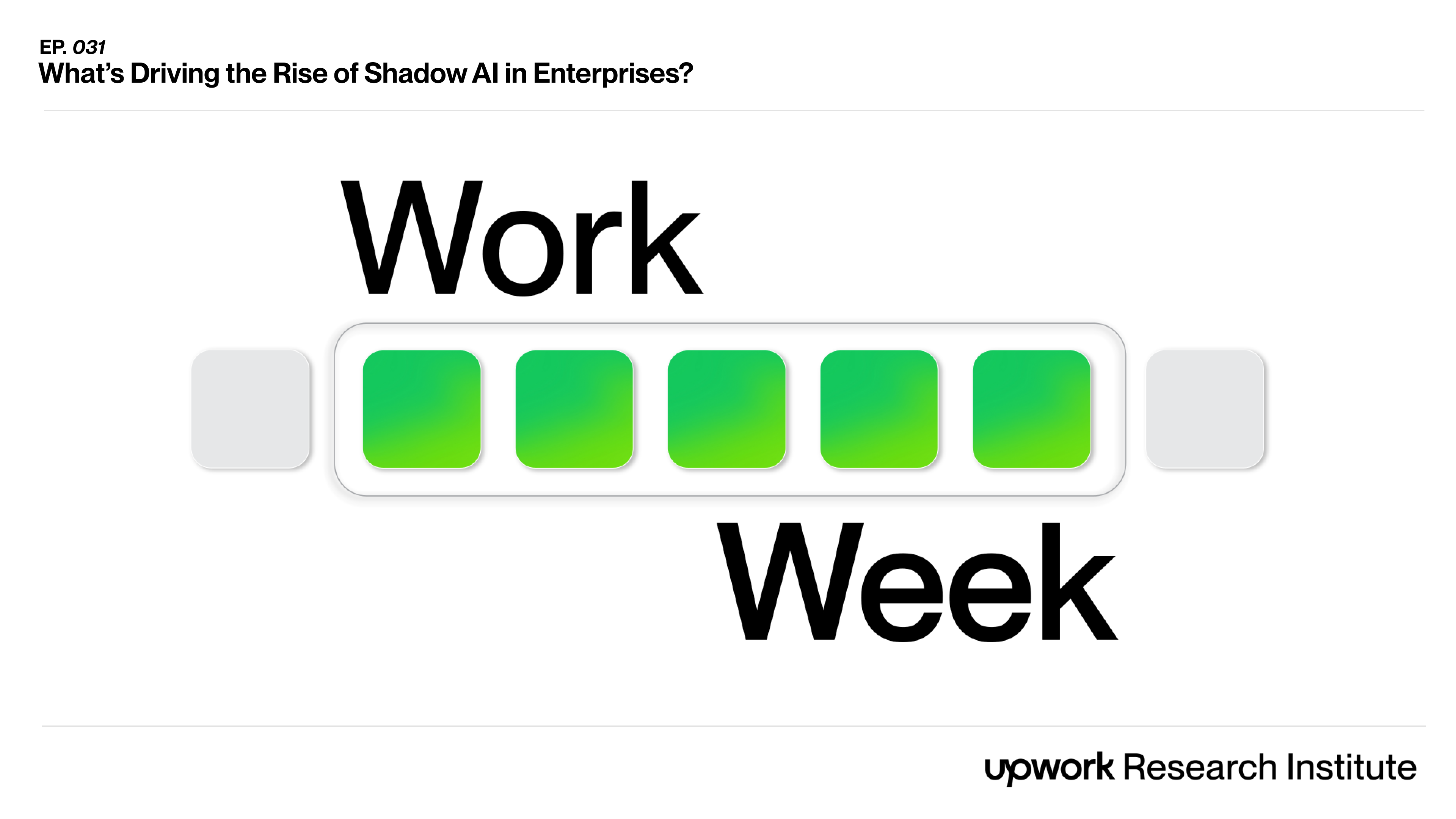
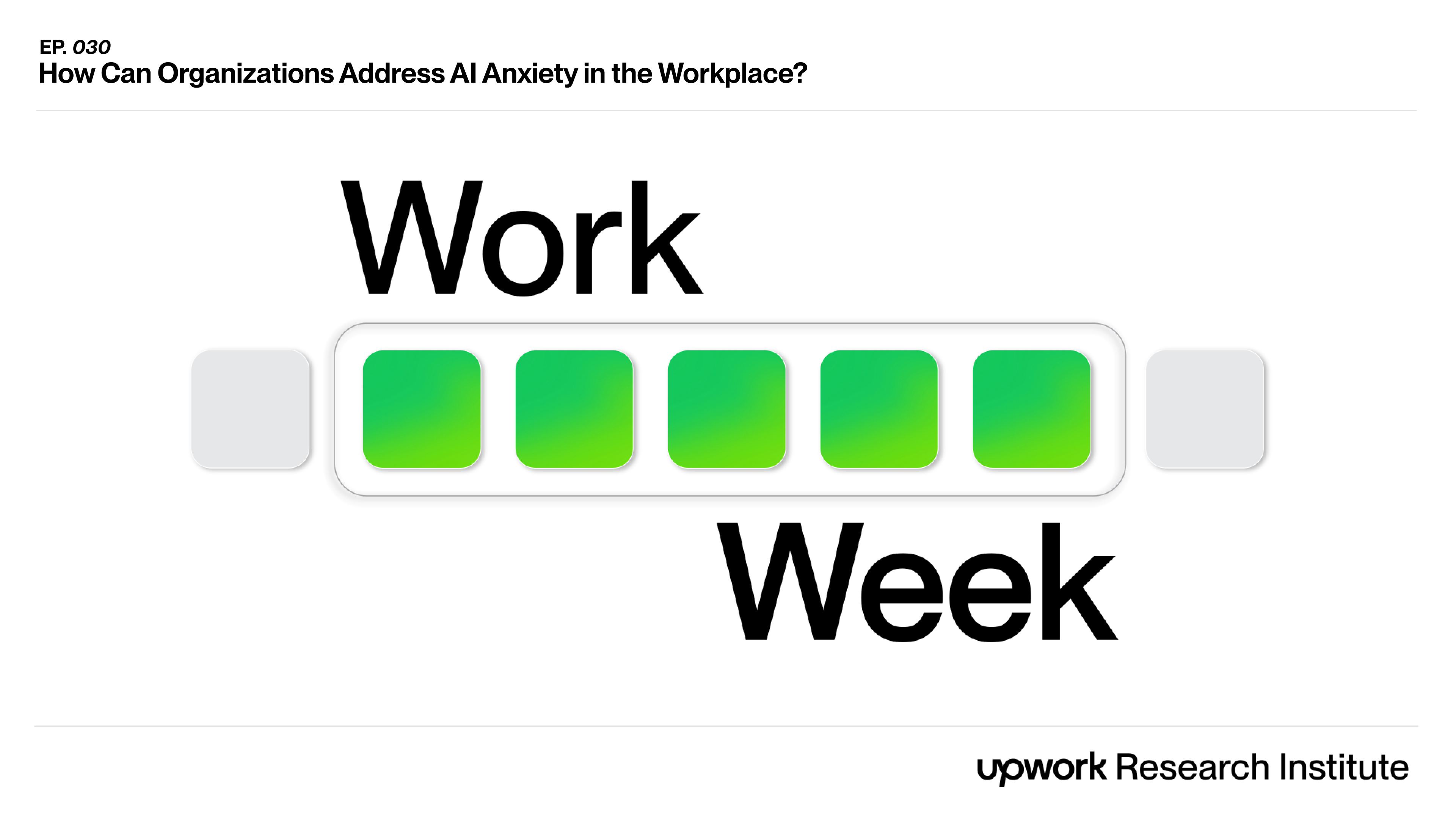
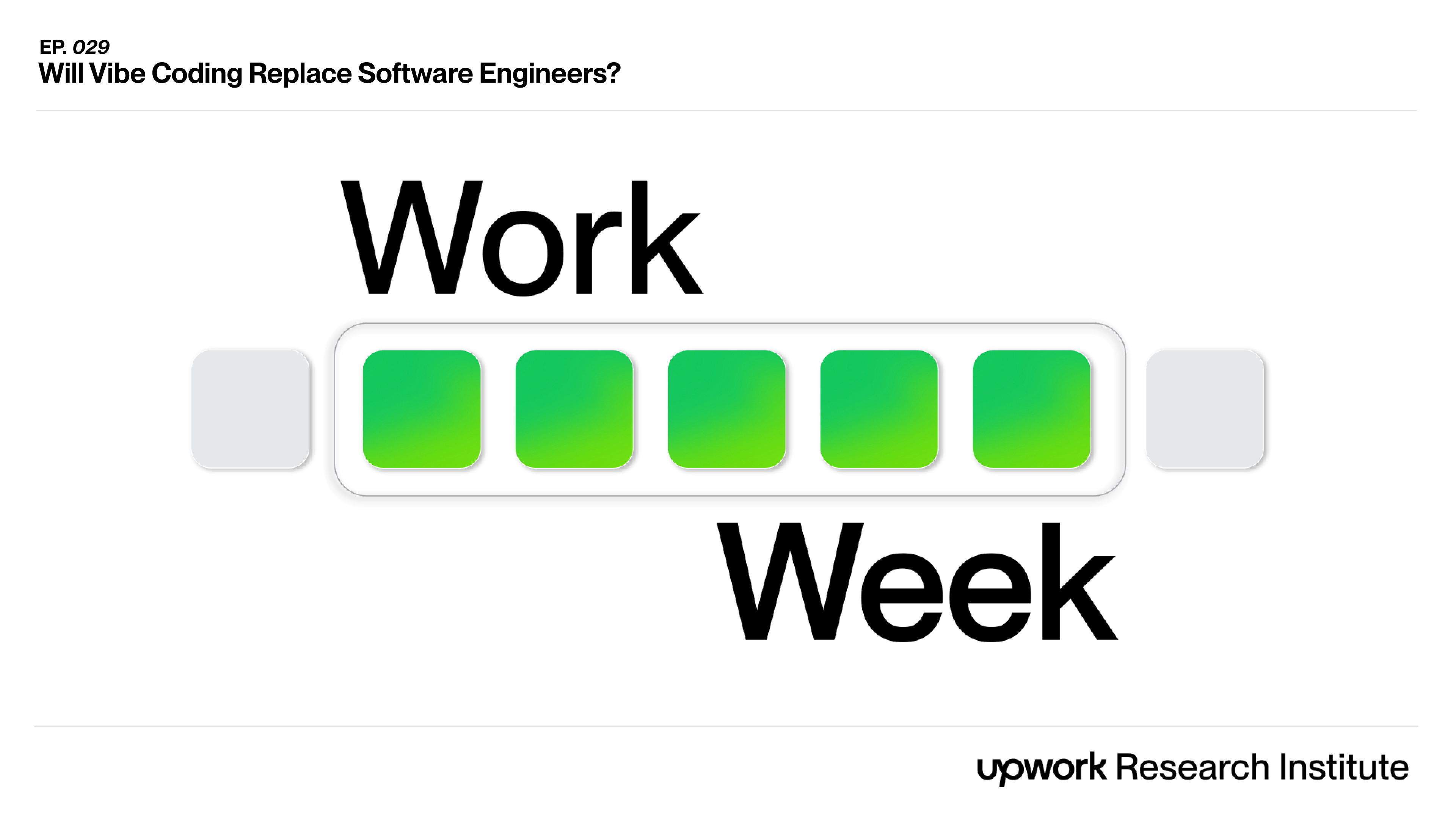
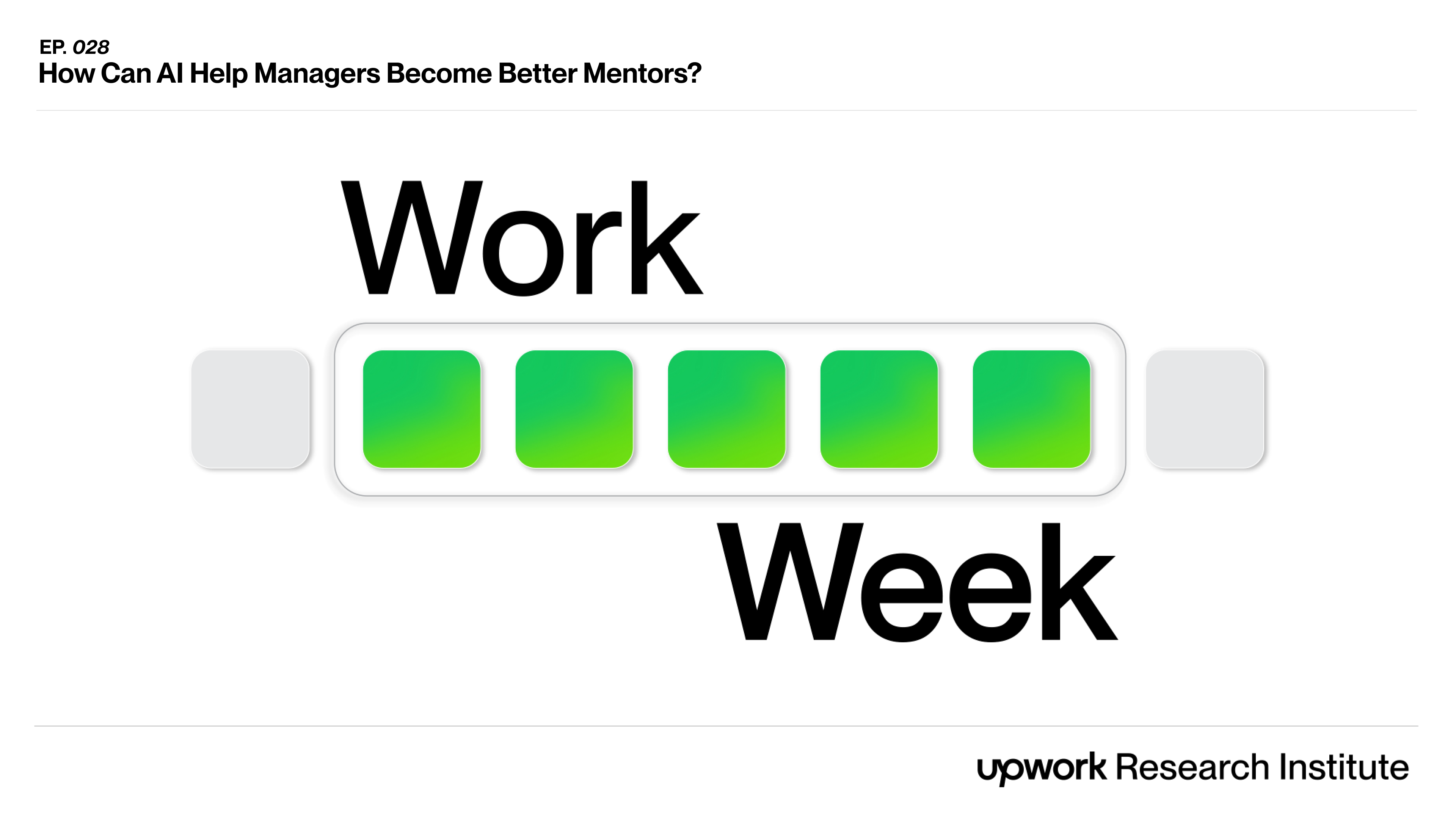

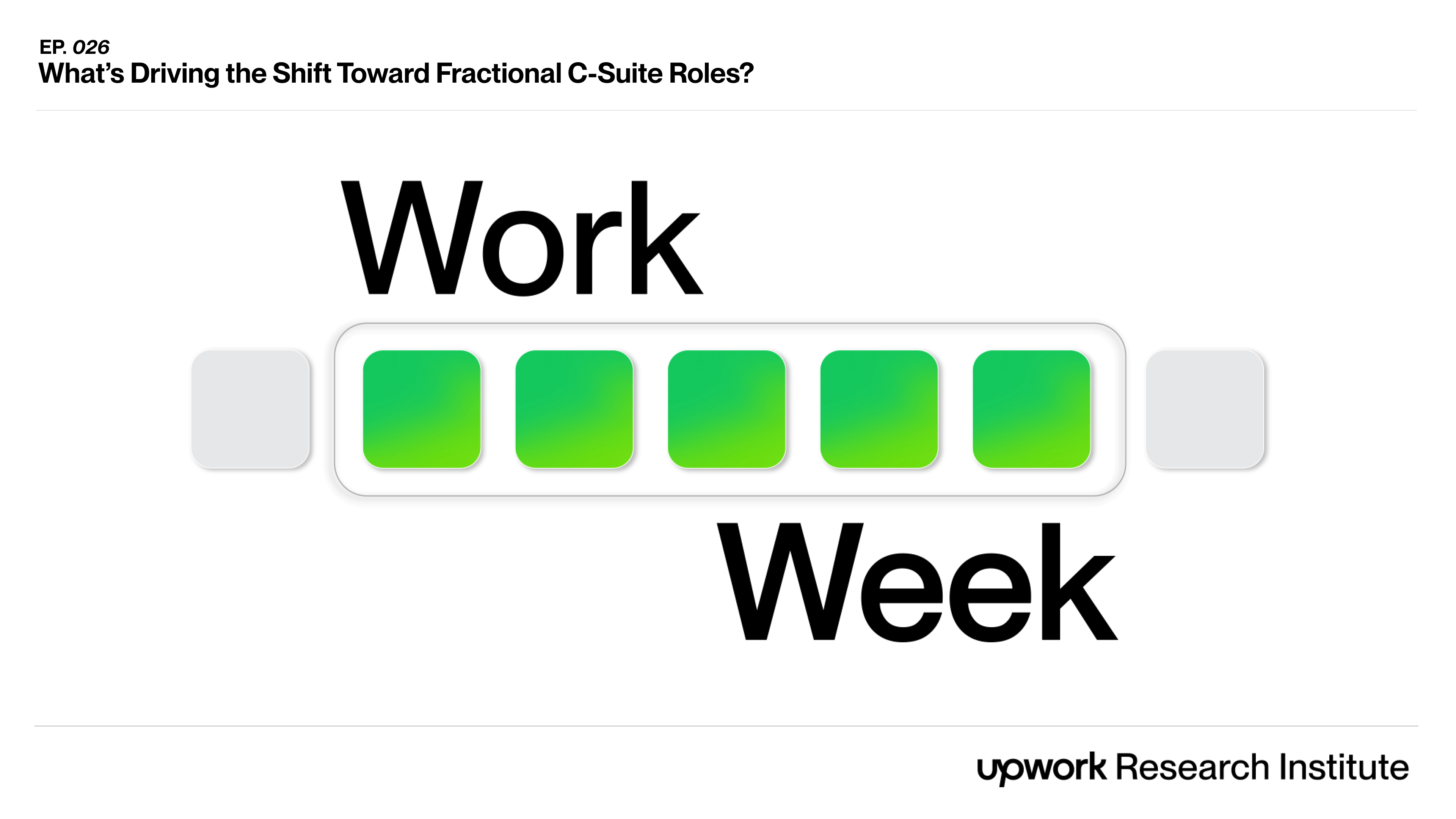
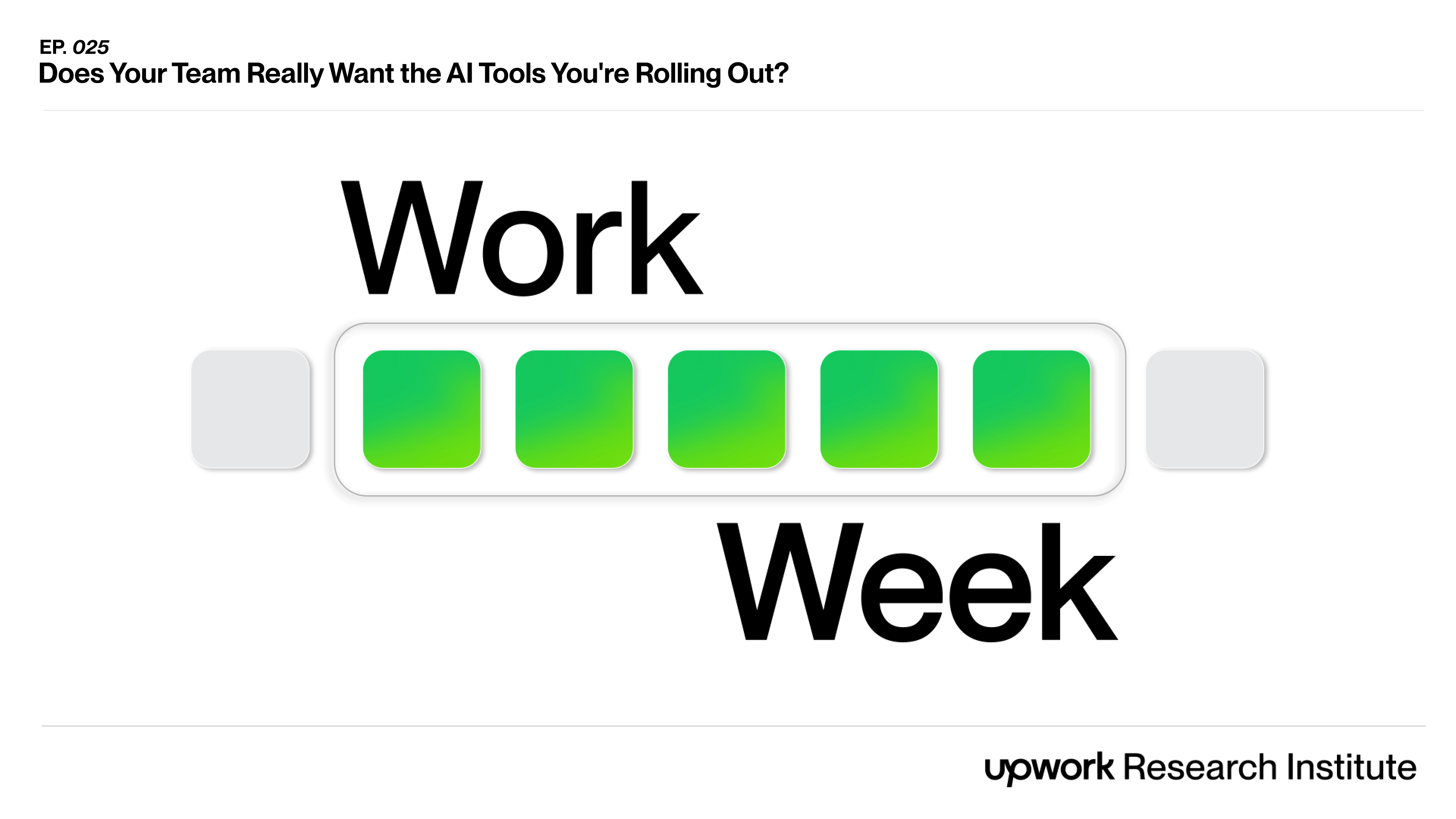
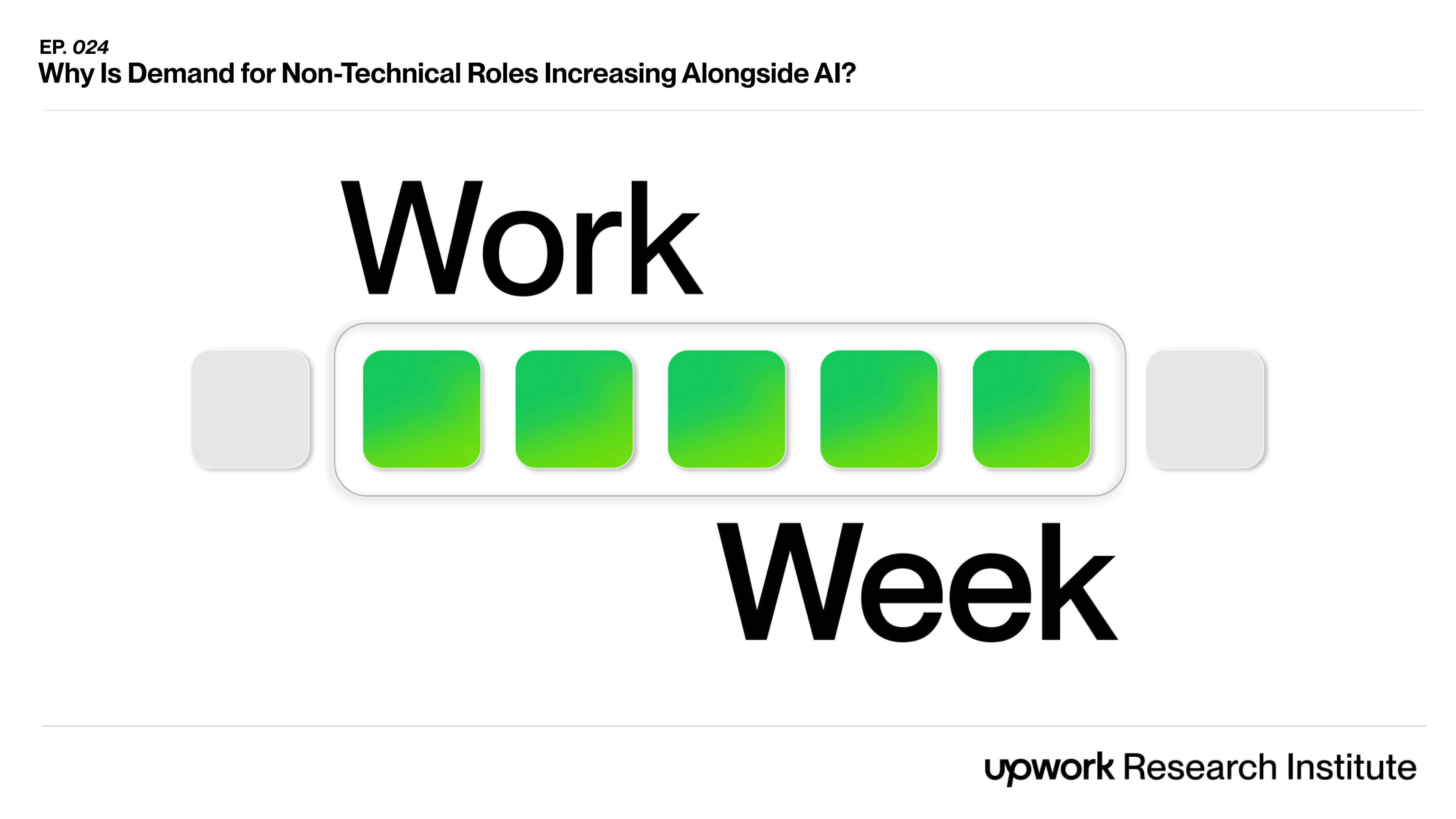
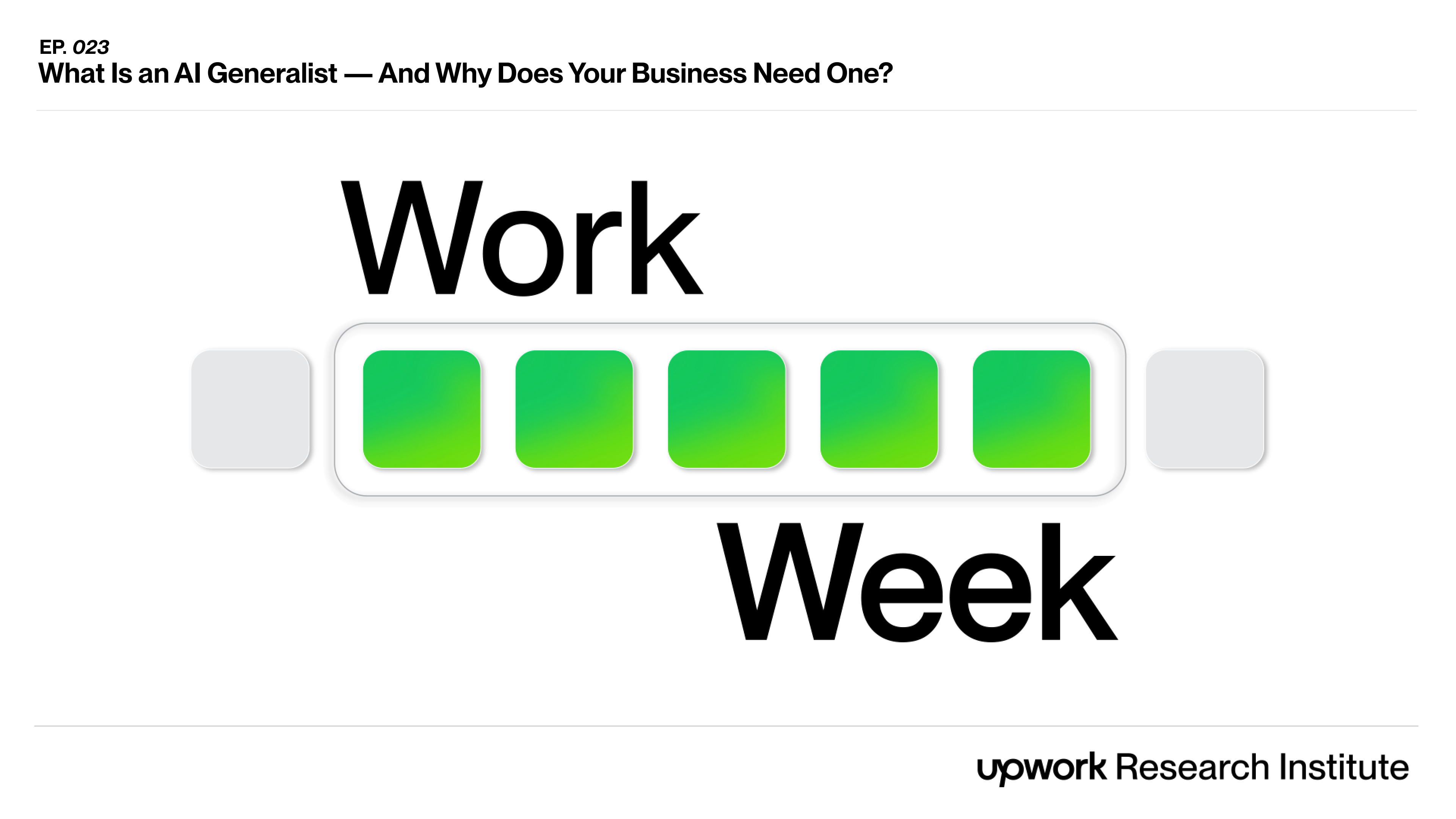
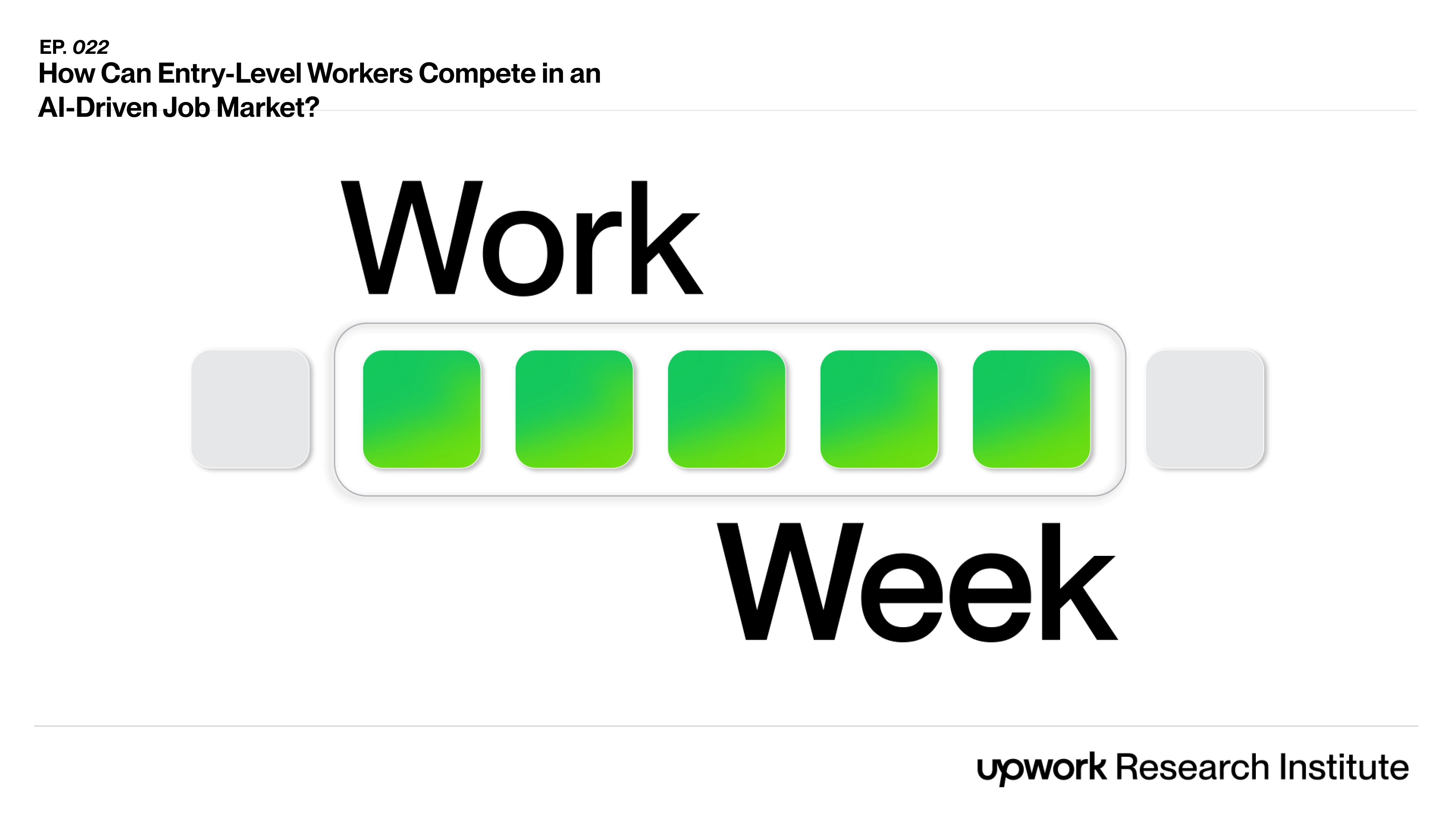

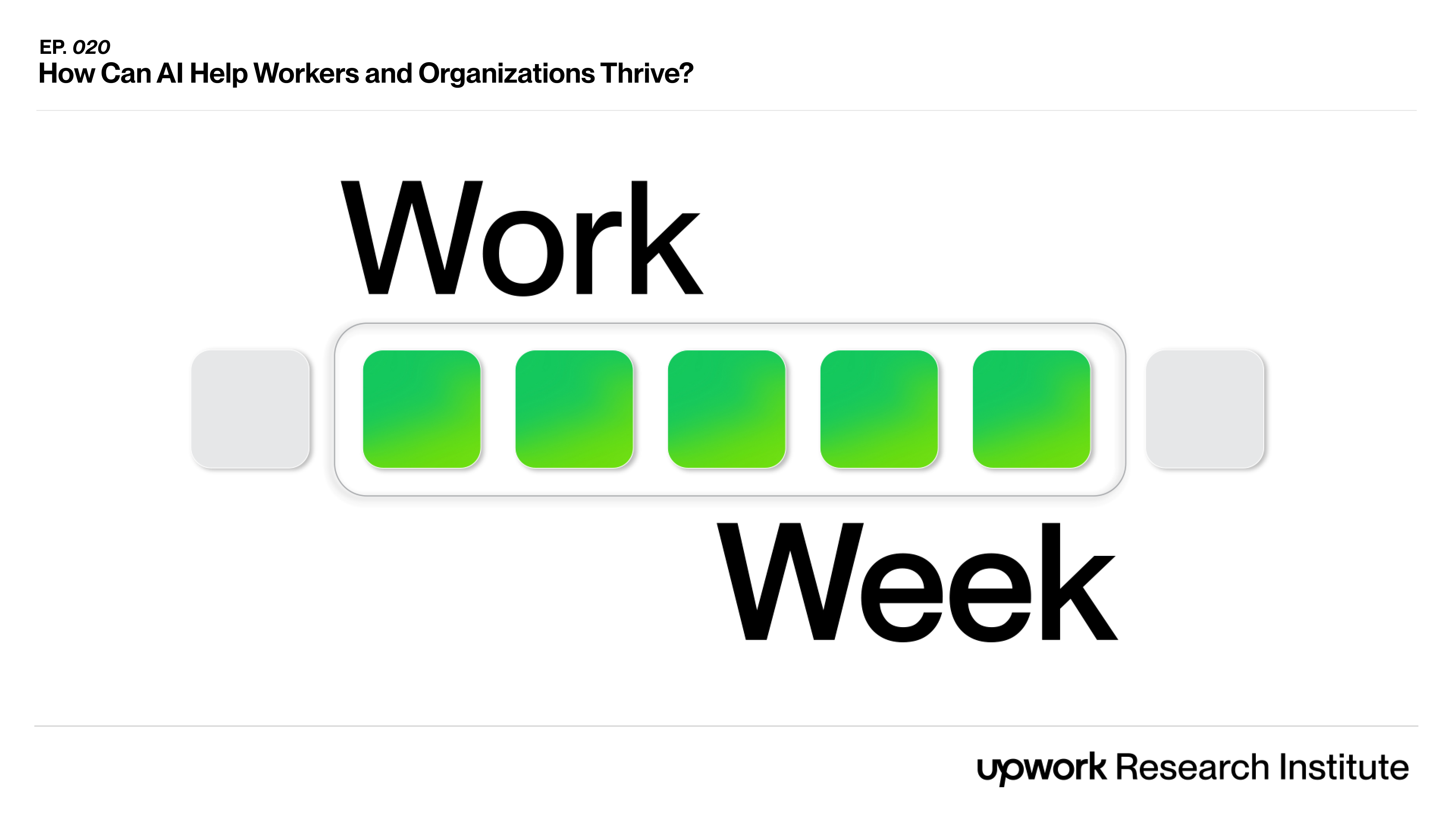
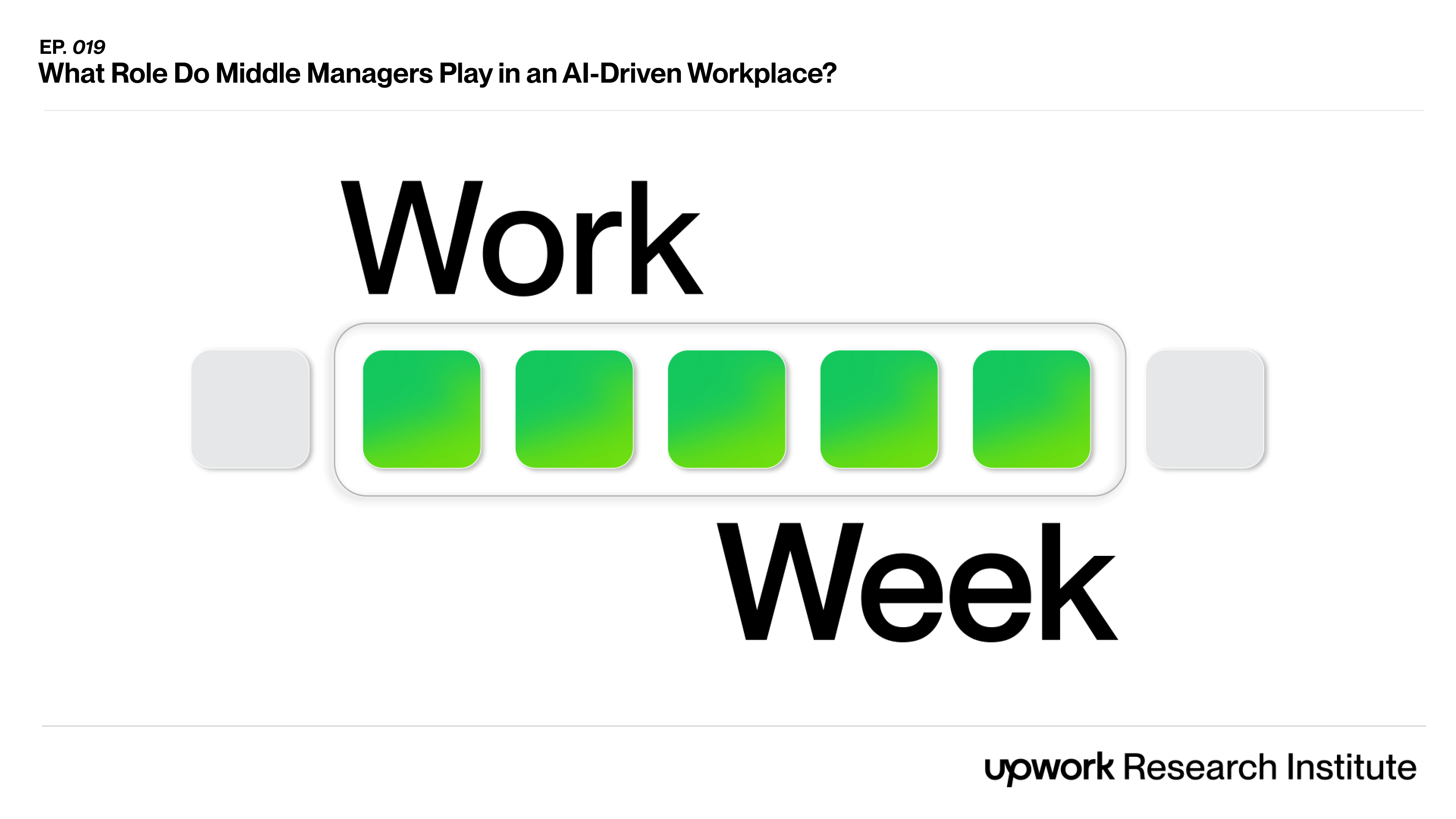
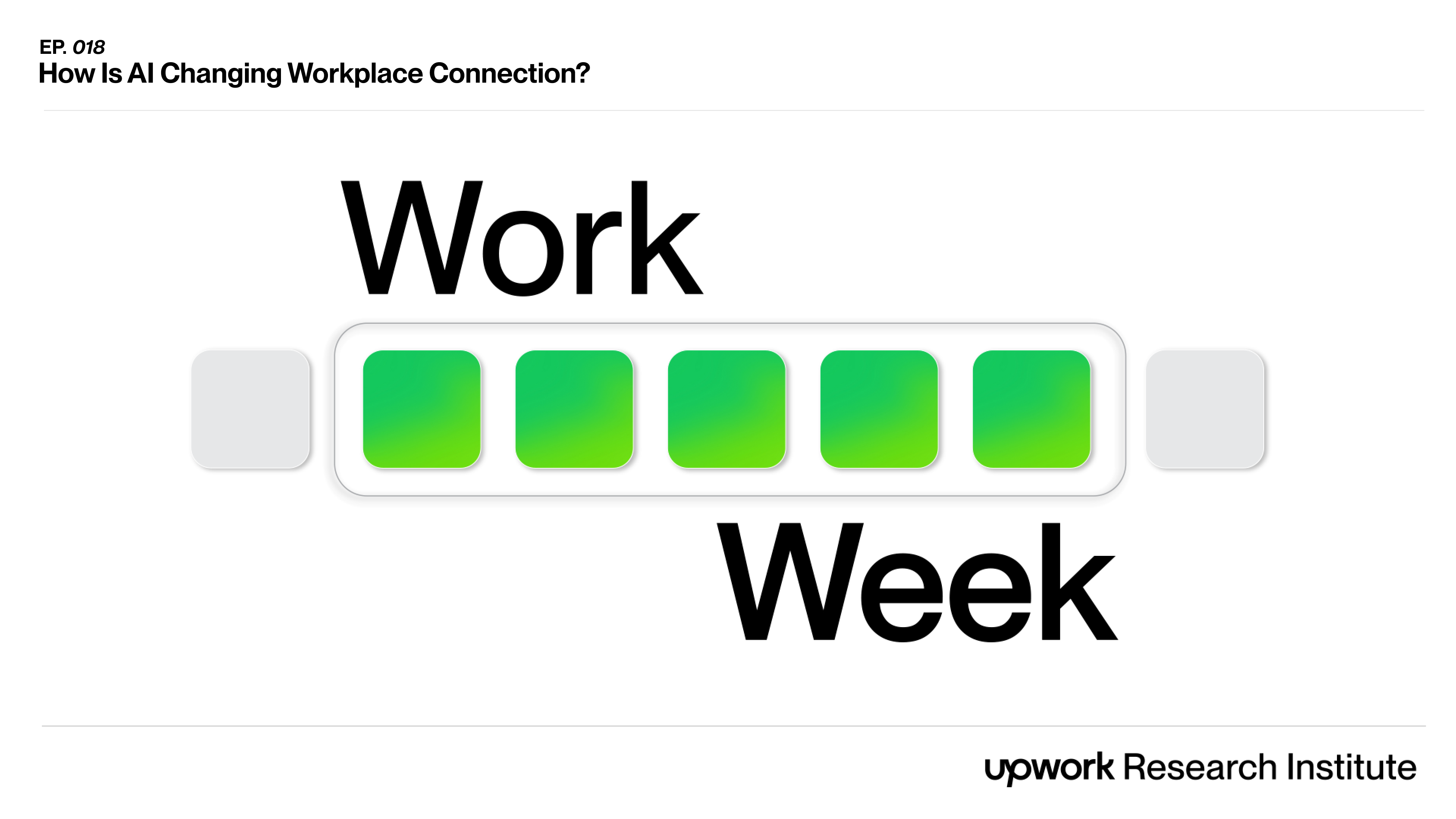

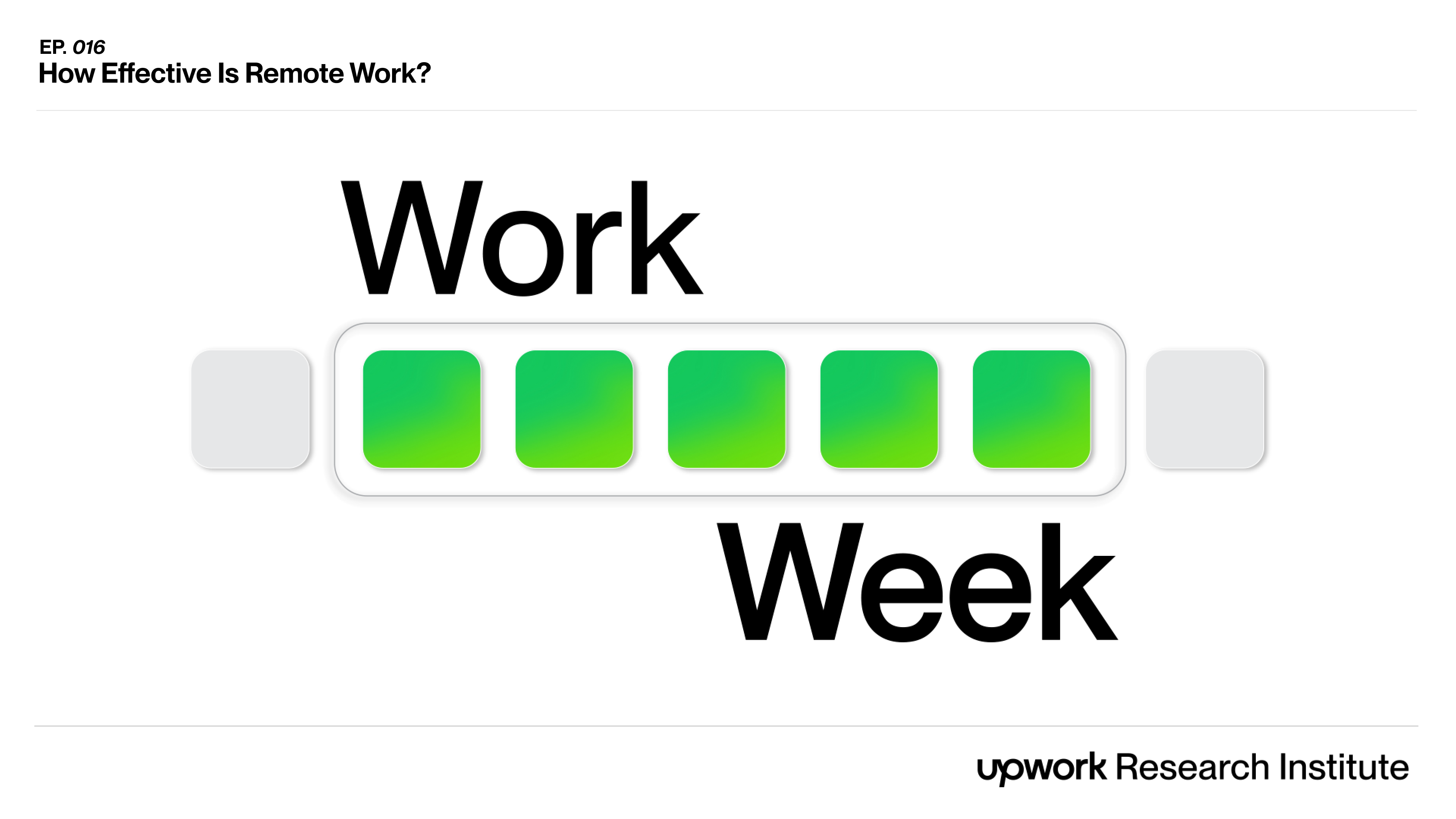
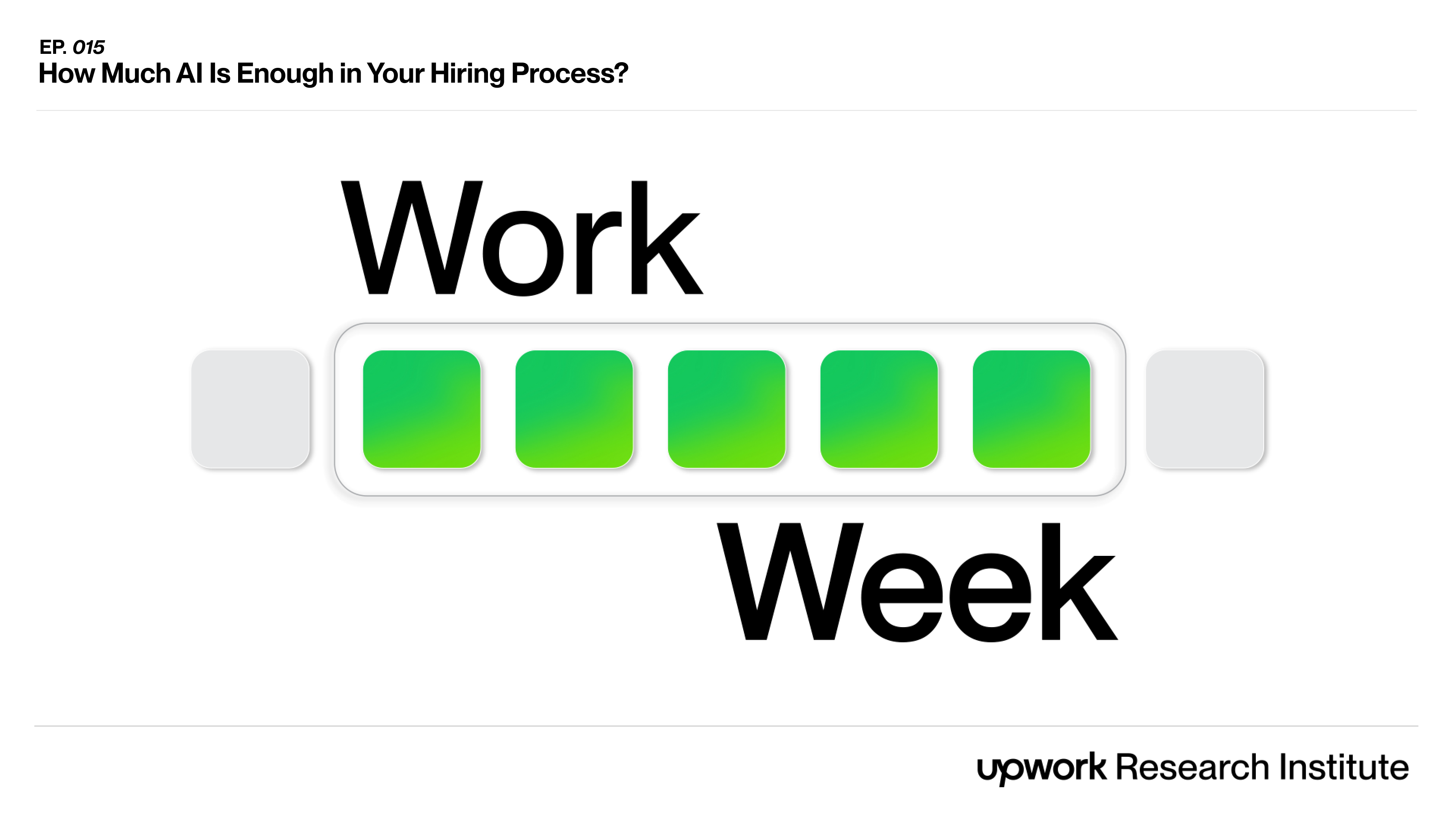

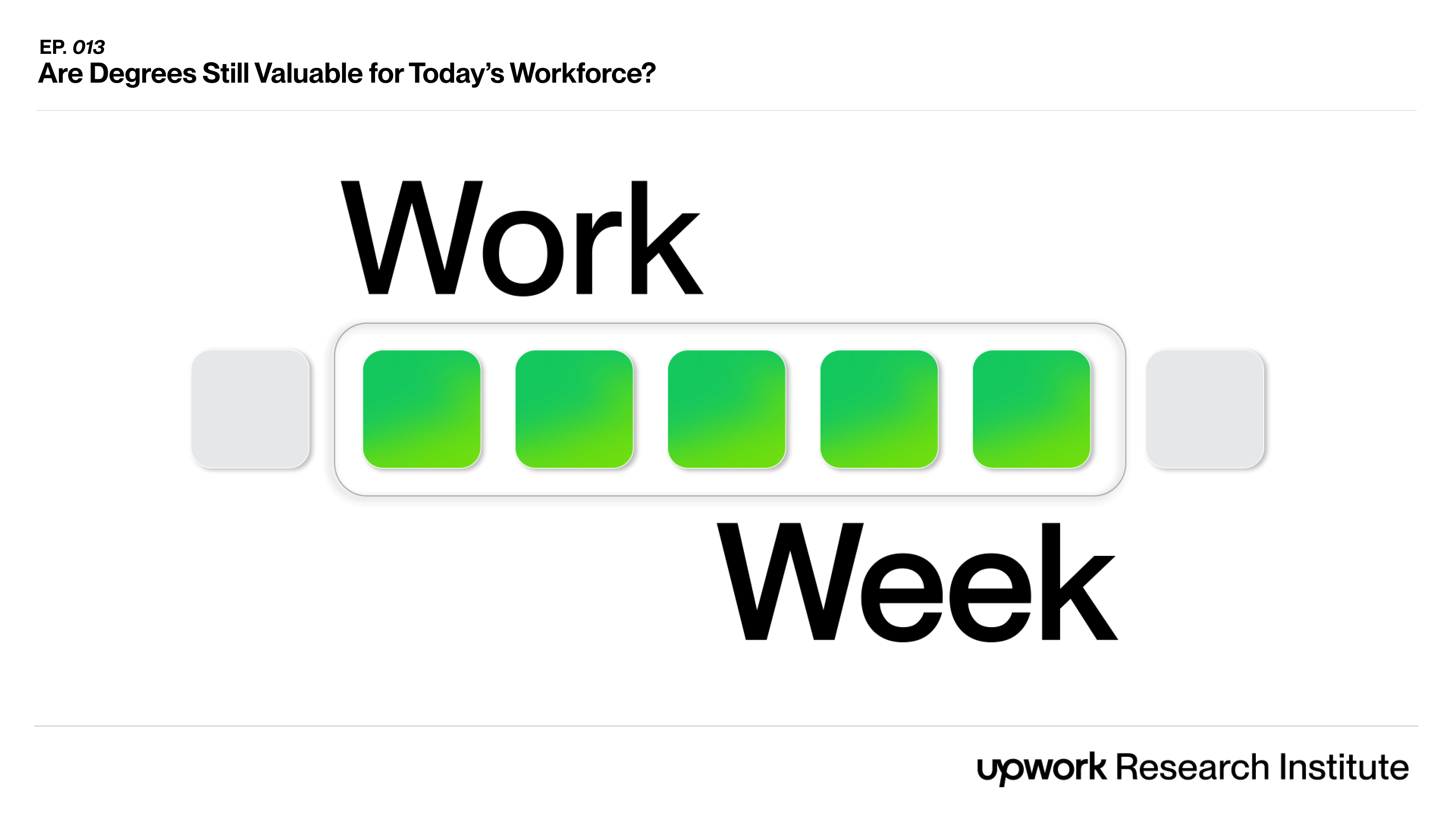
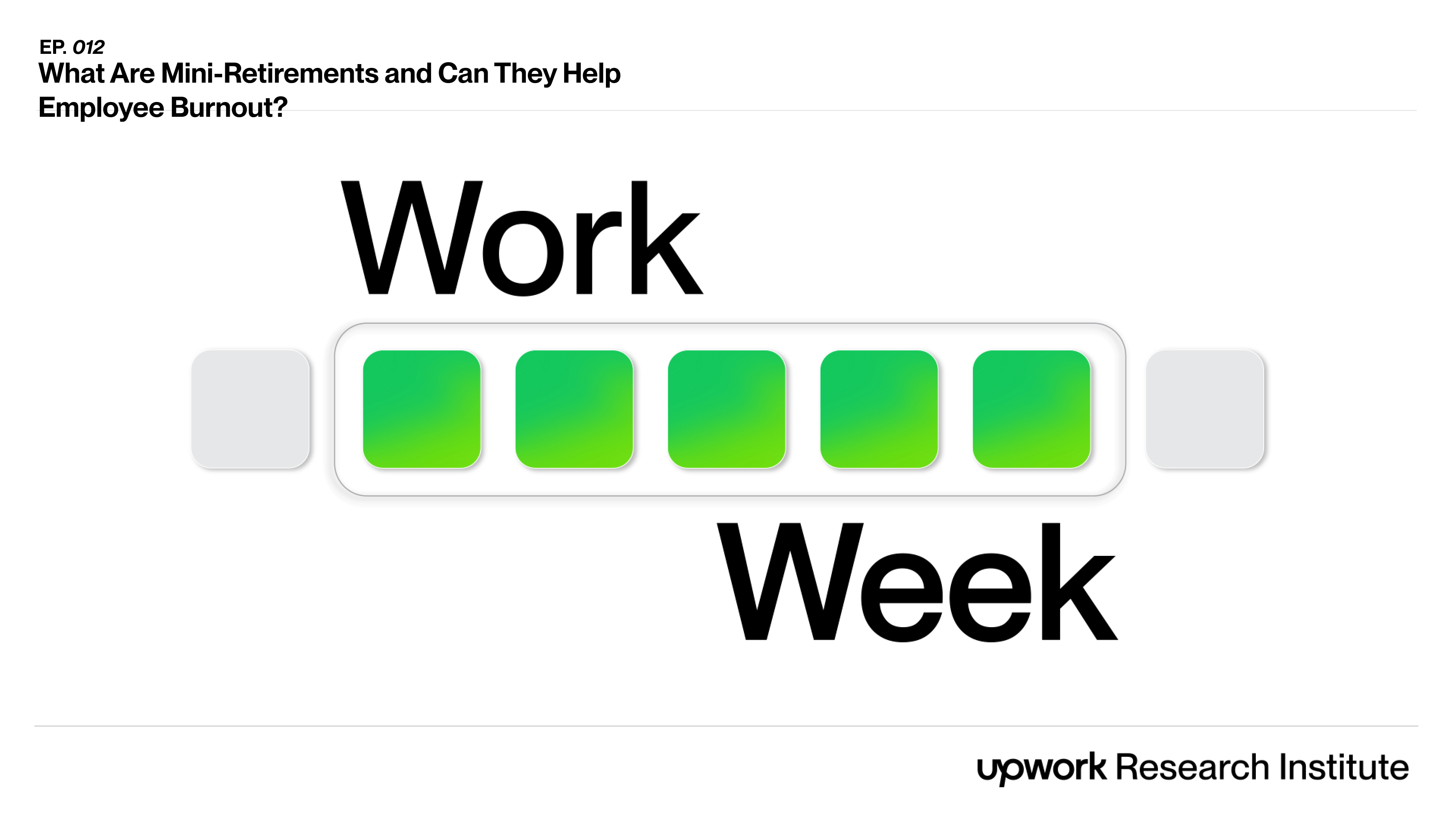
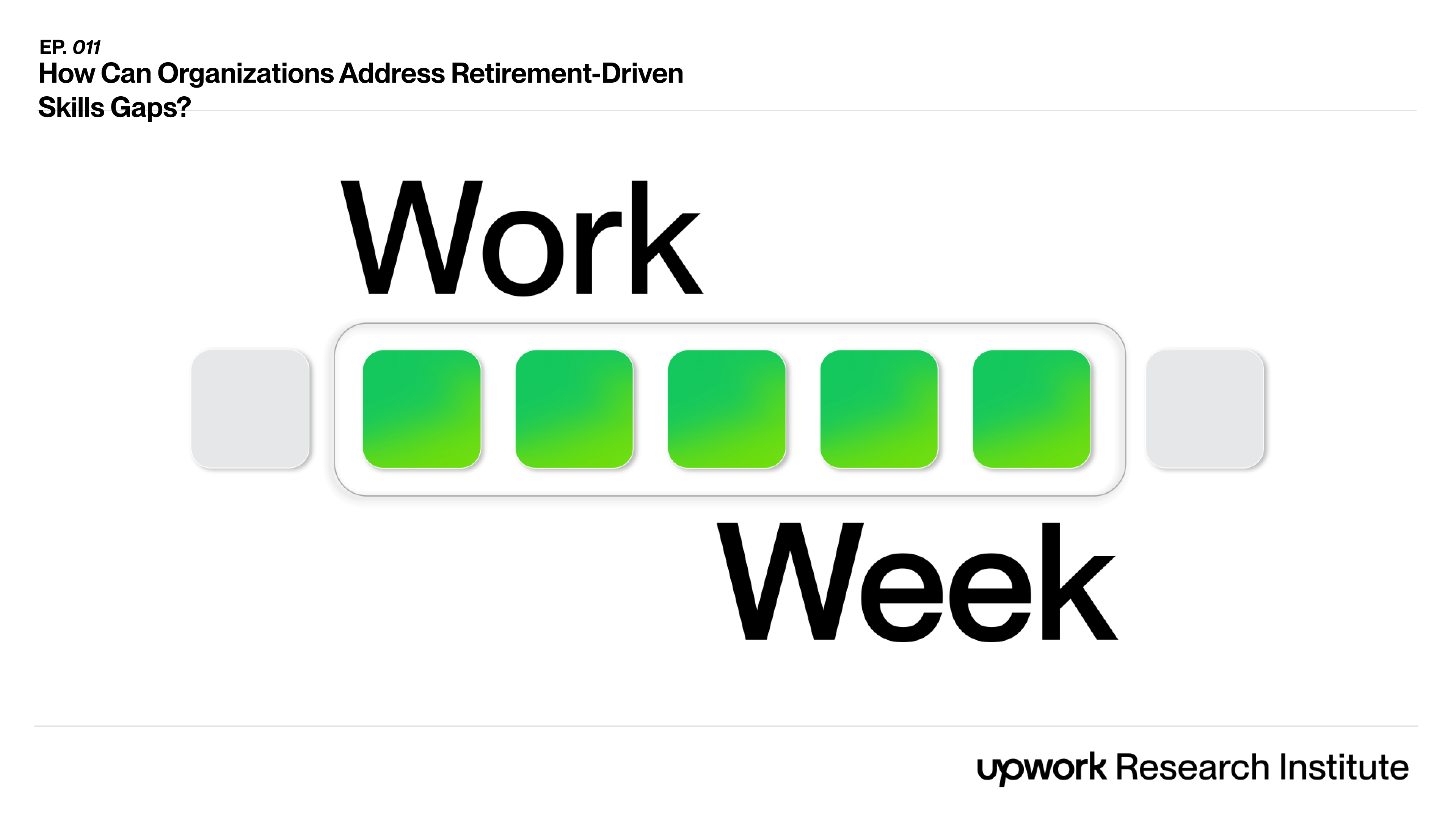
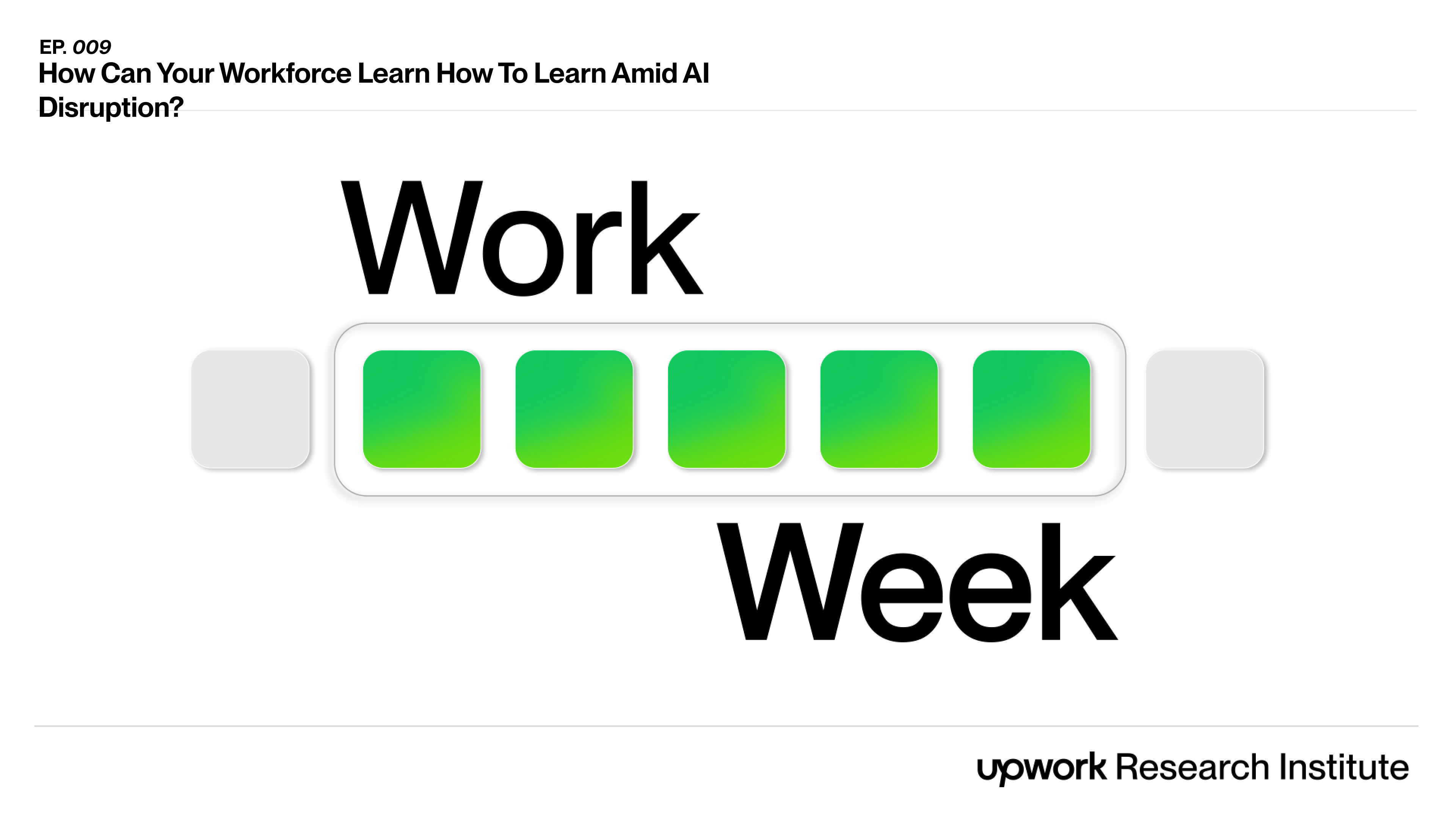
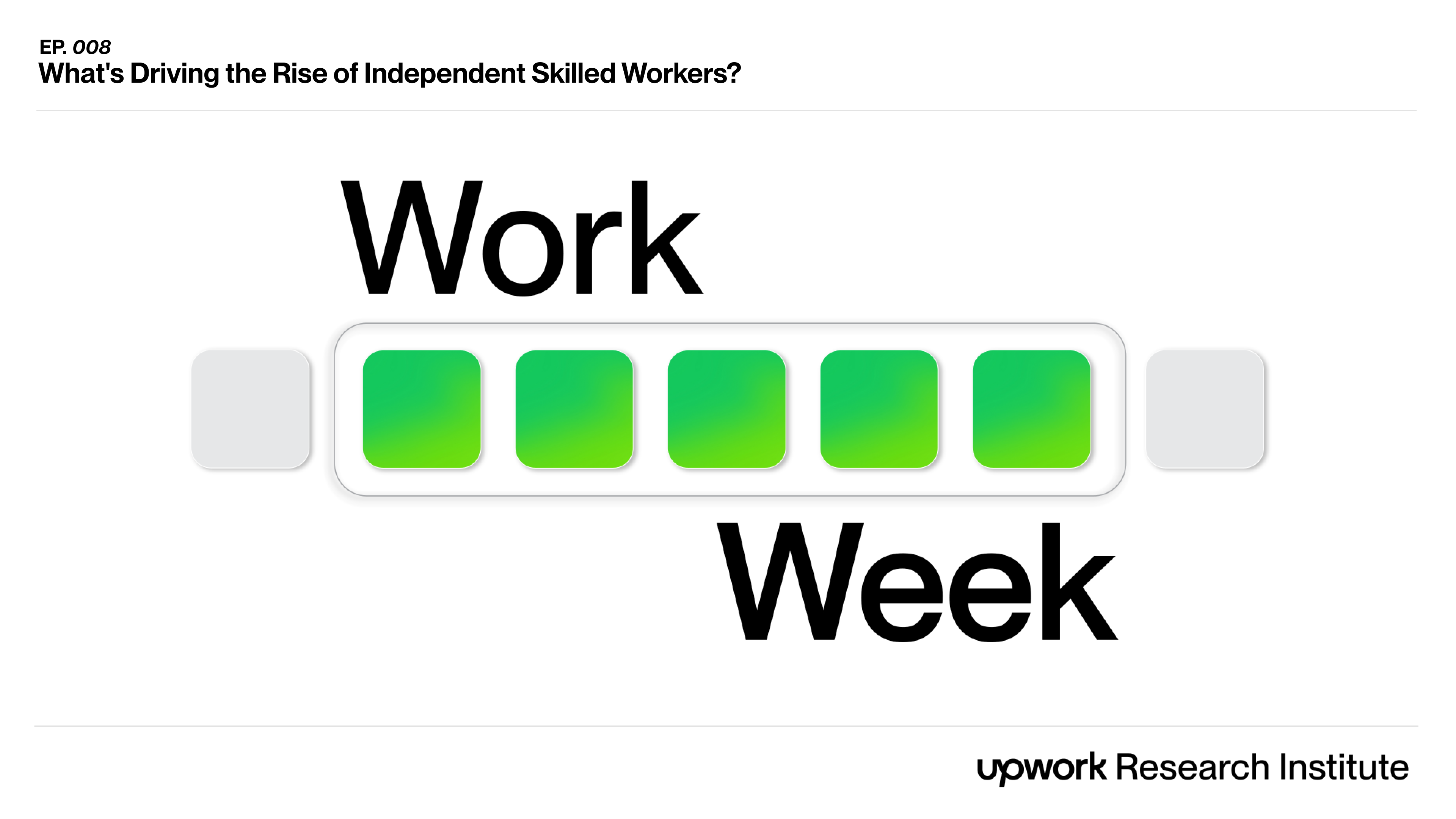
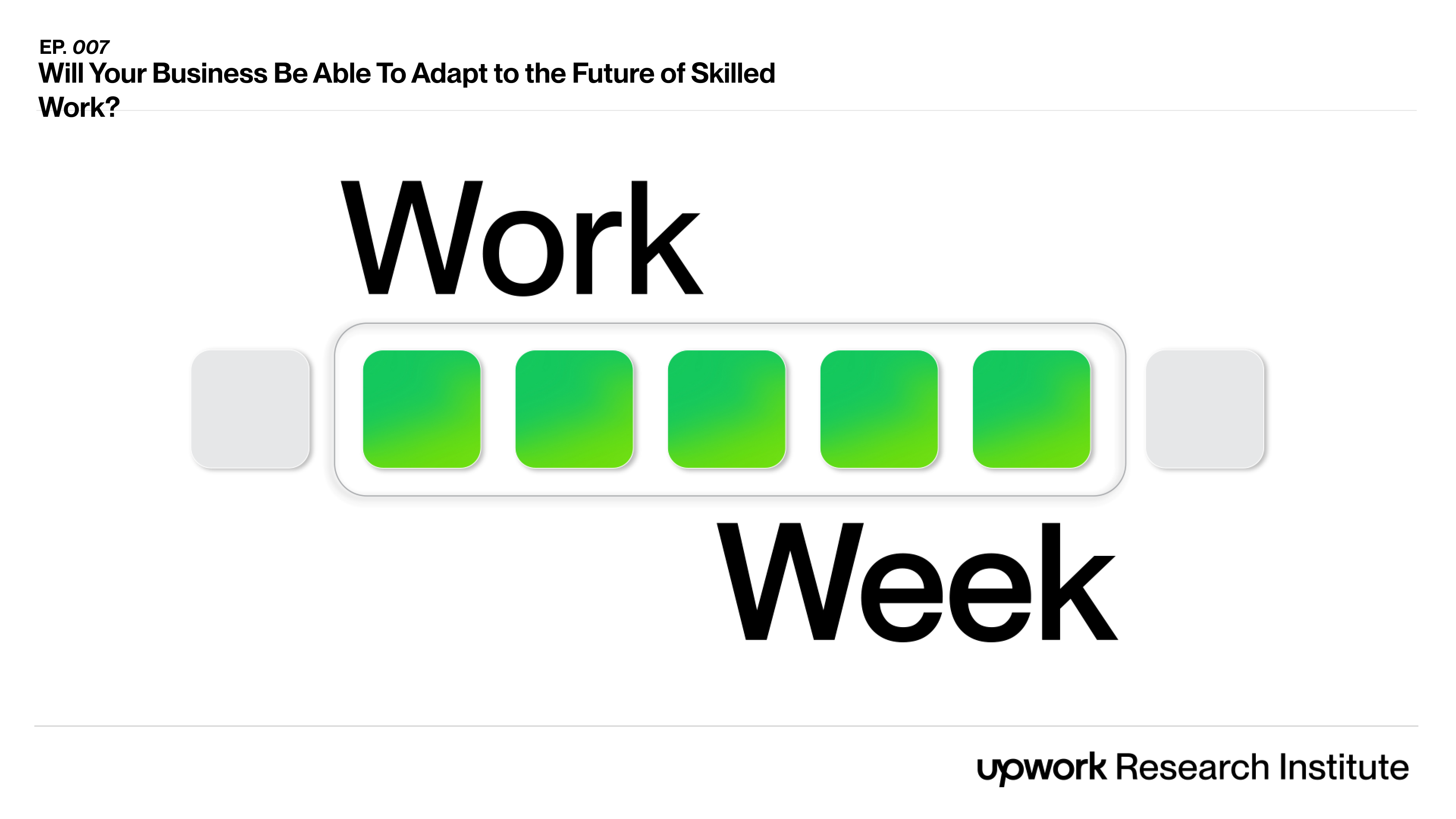
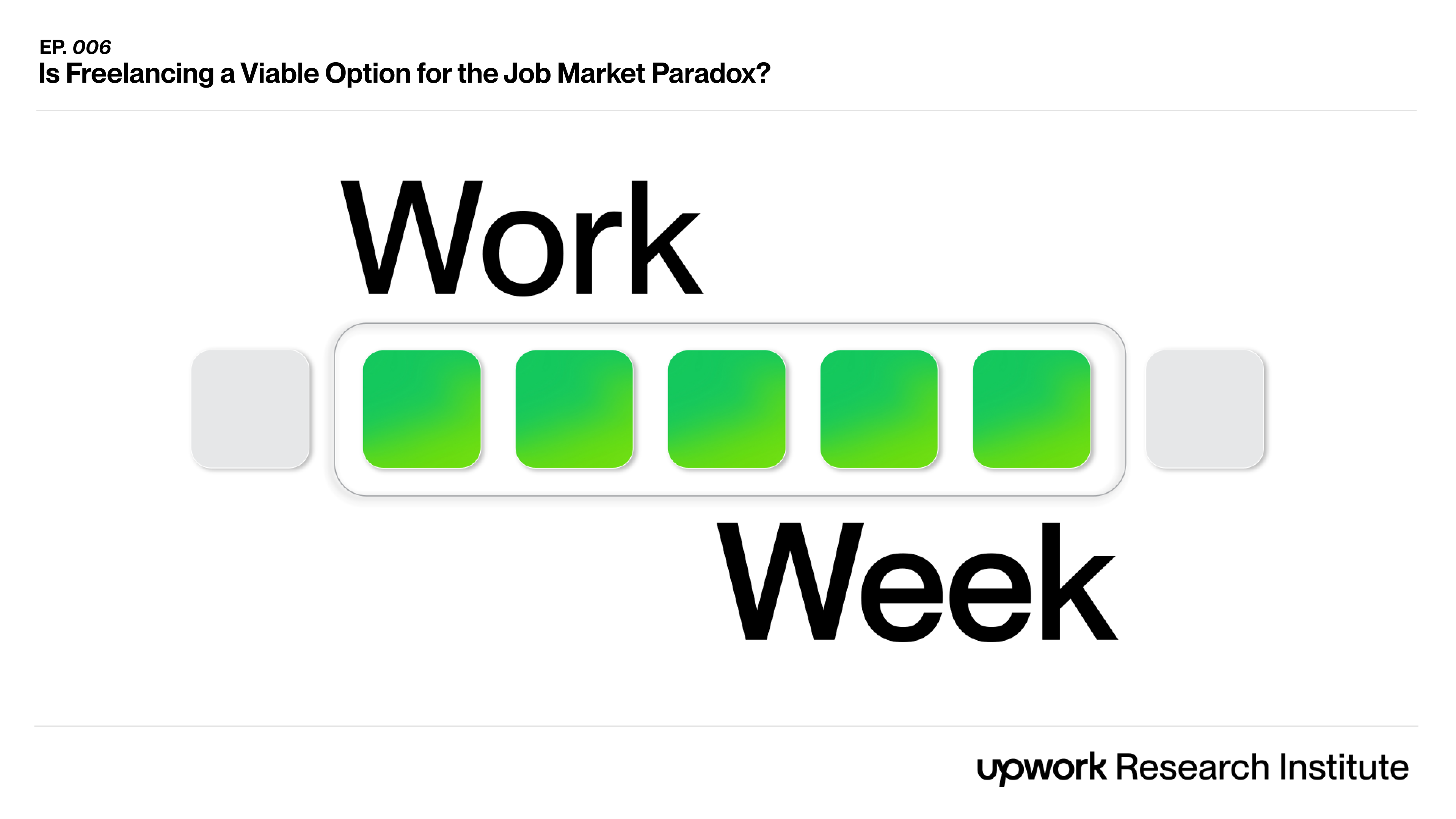
.png)
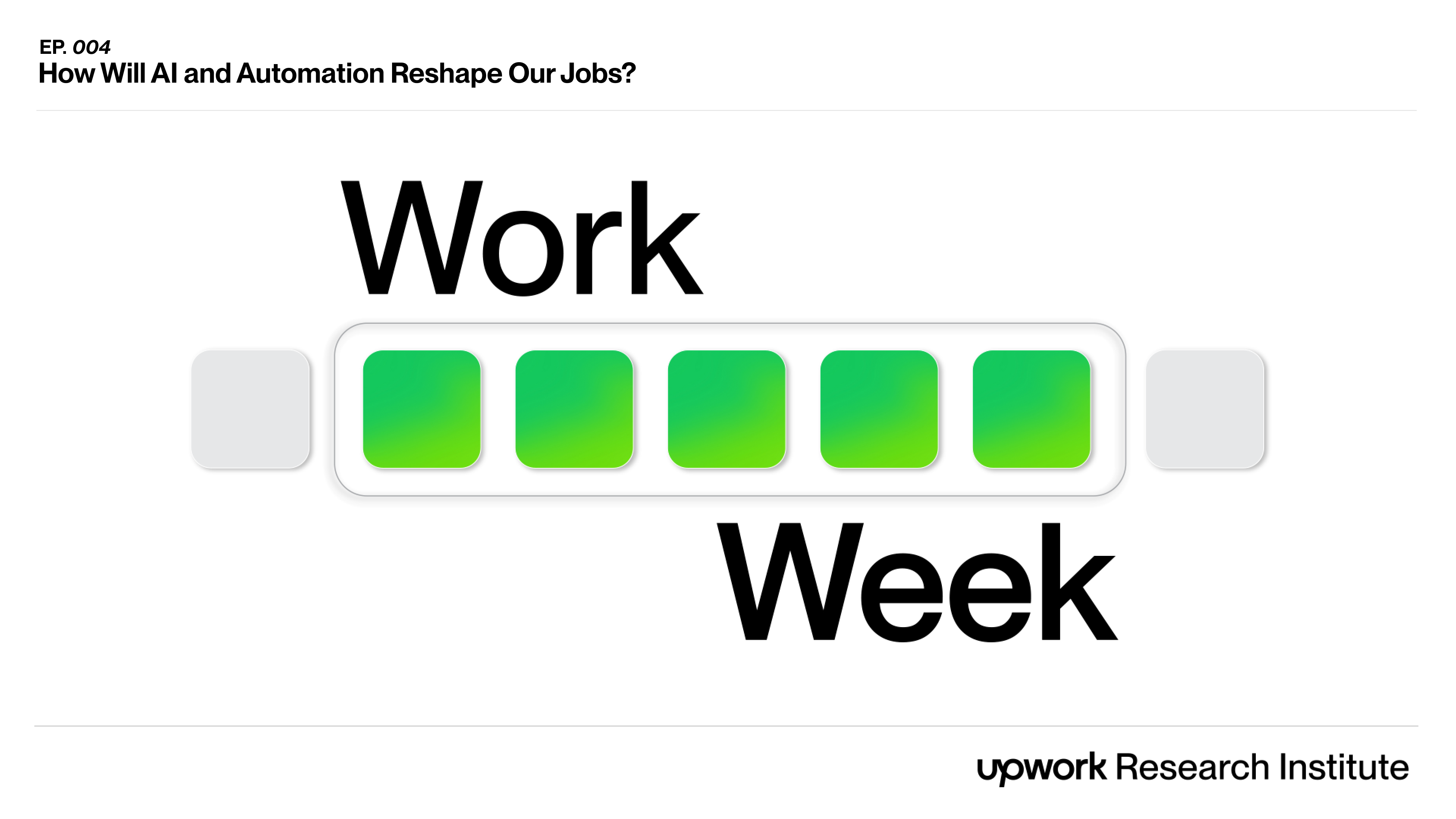

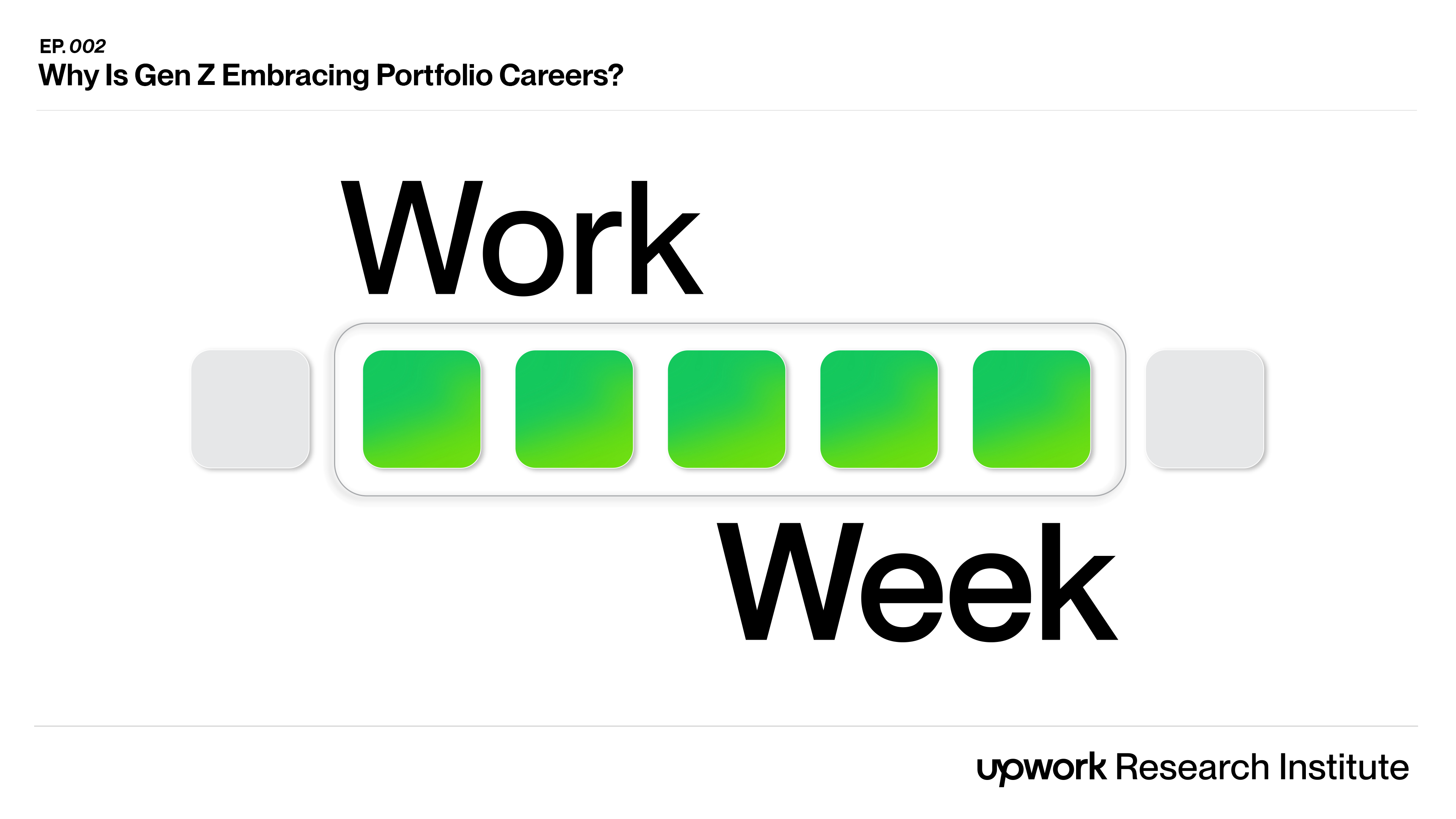
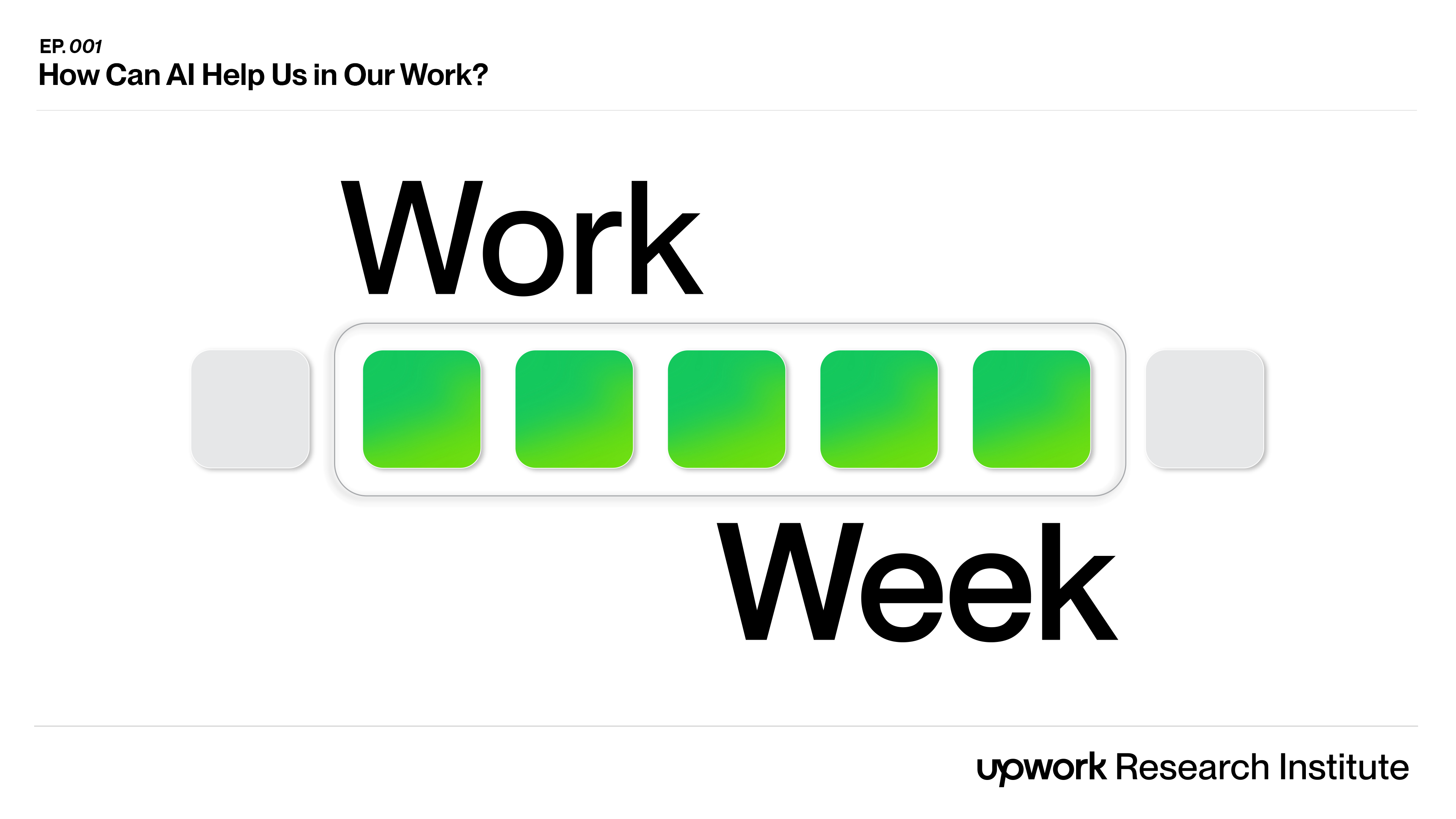
.jpg)